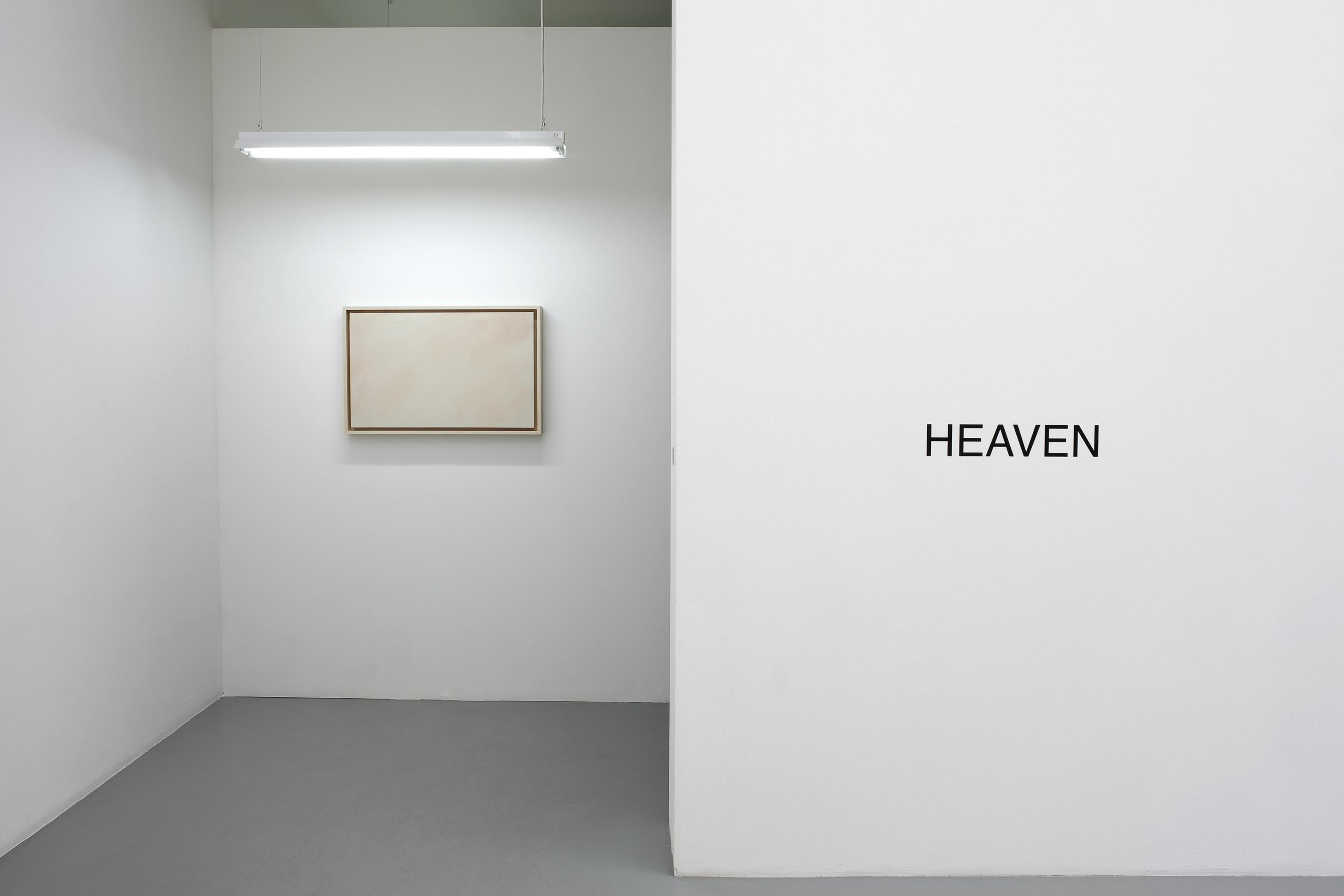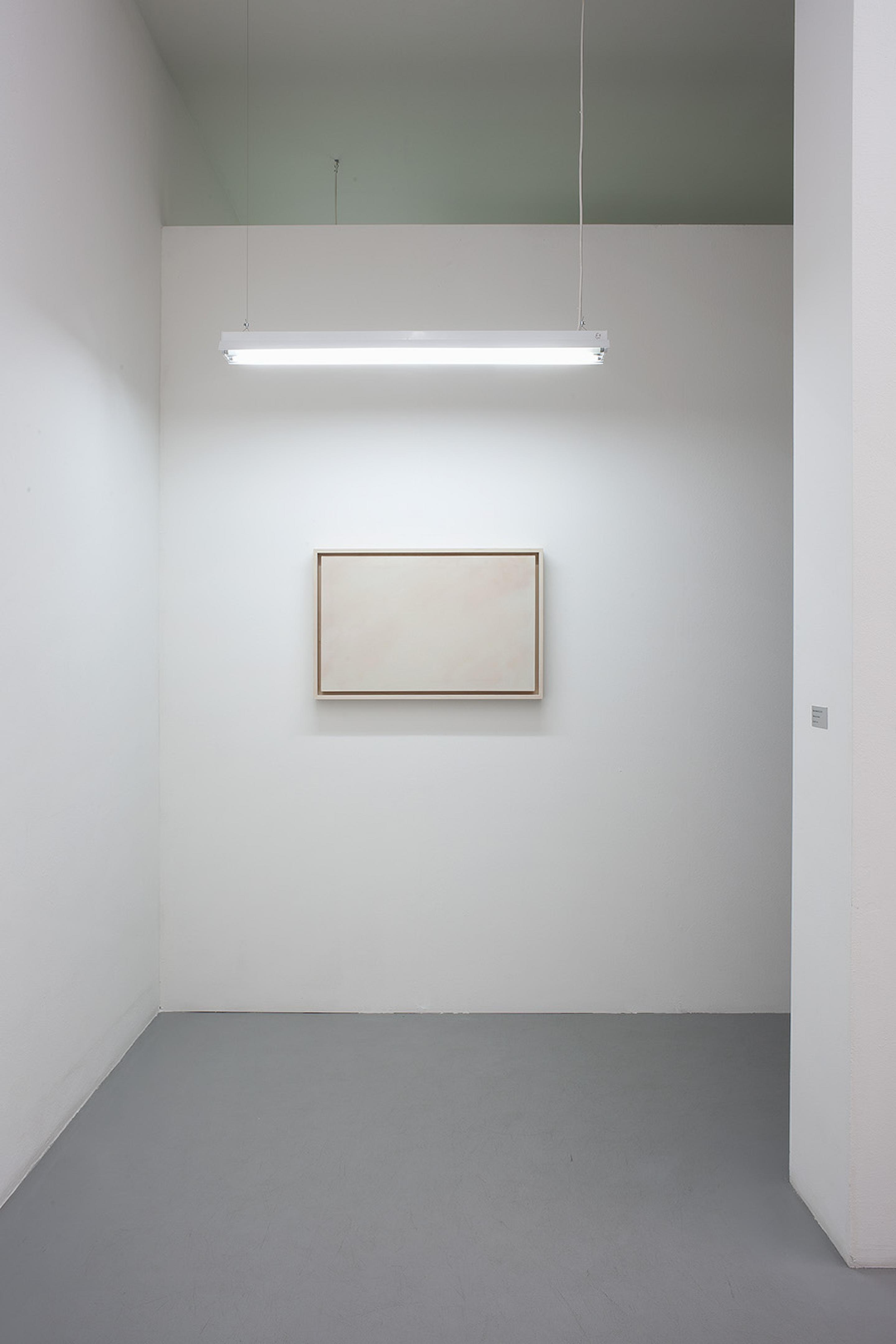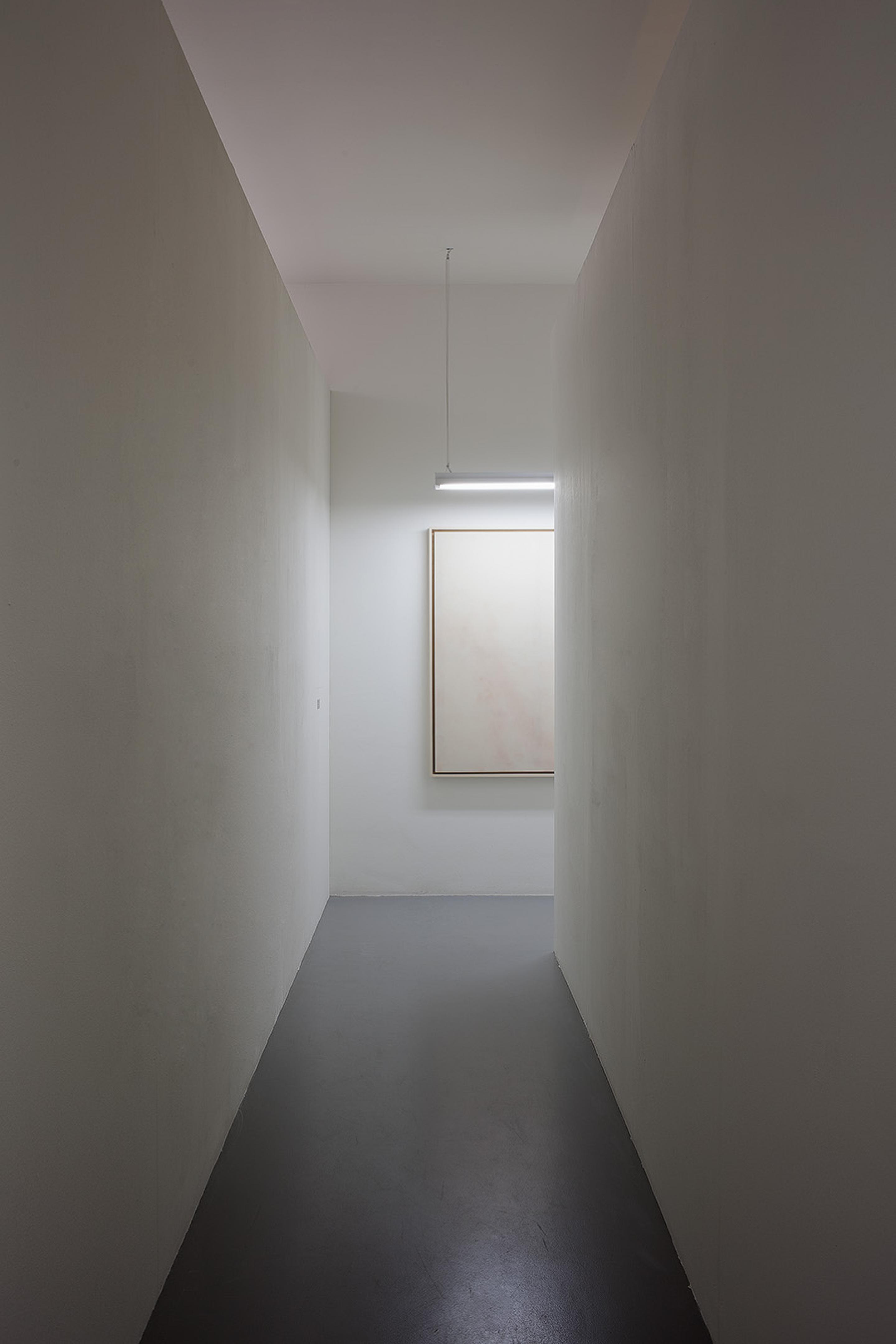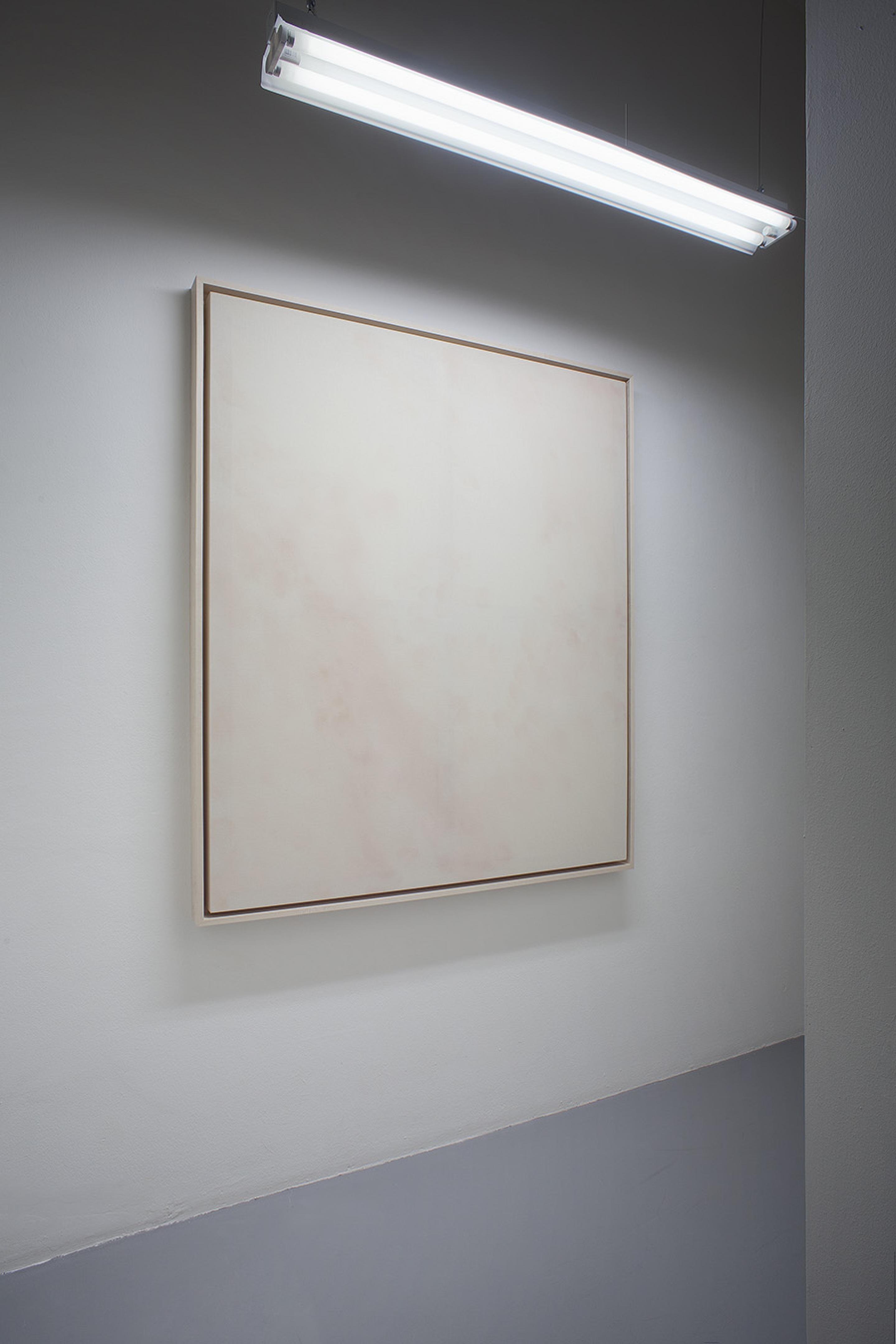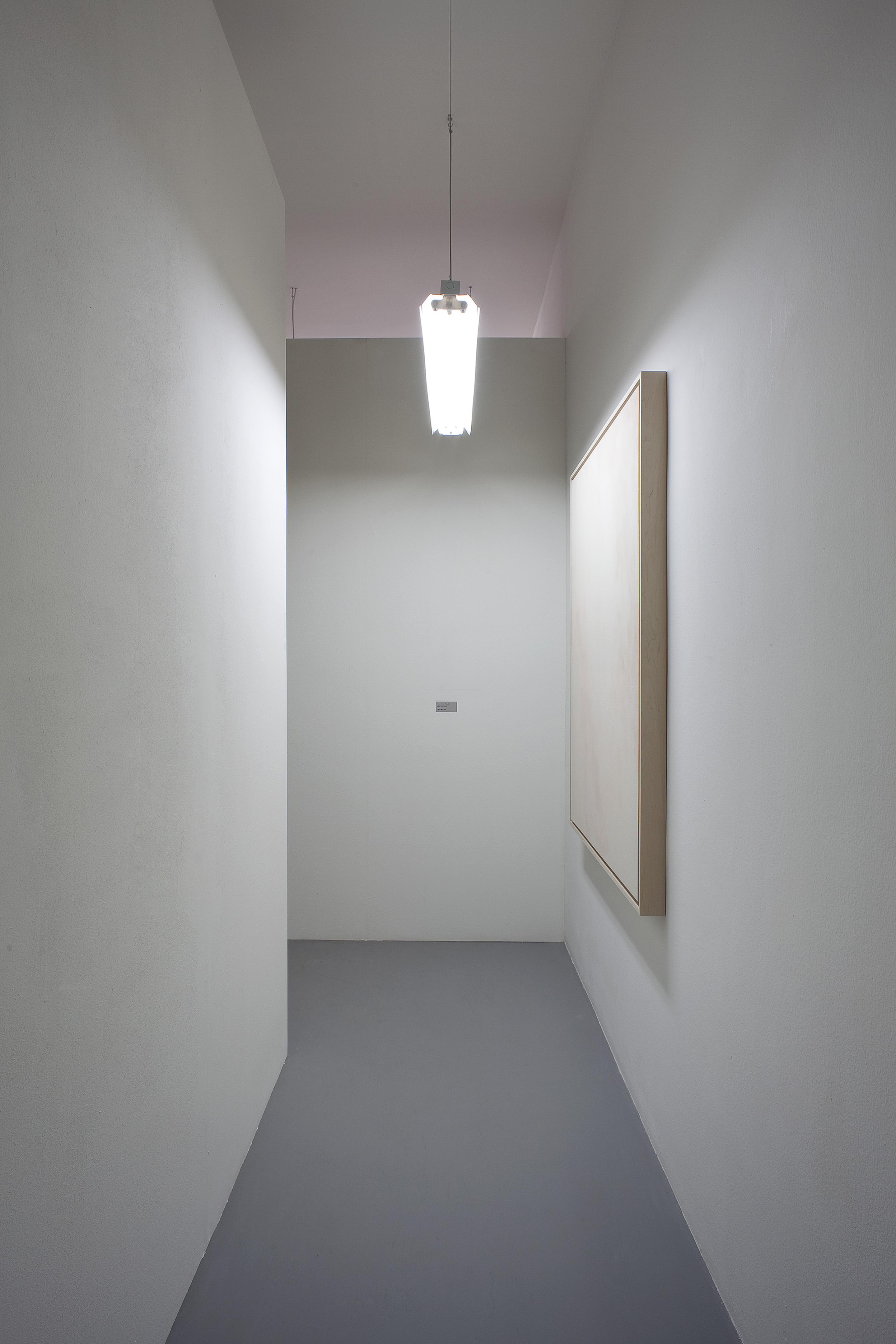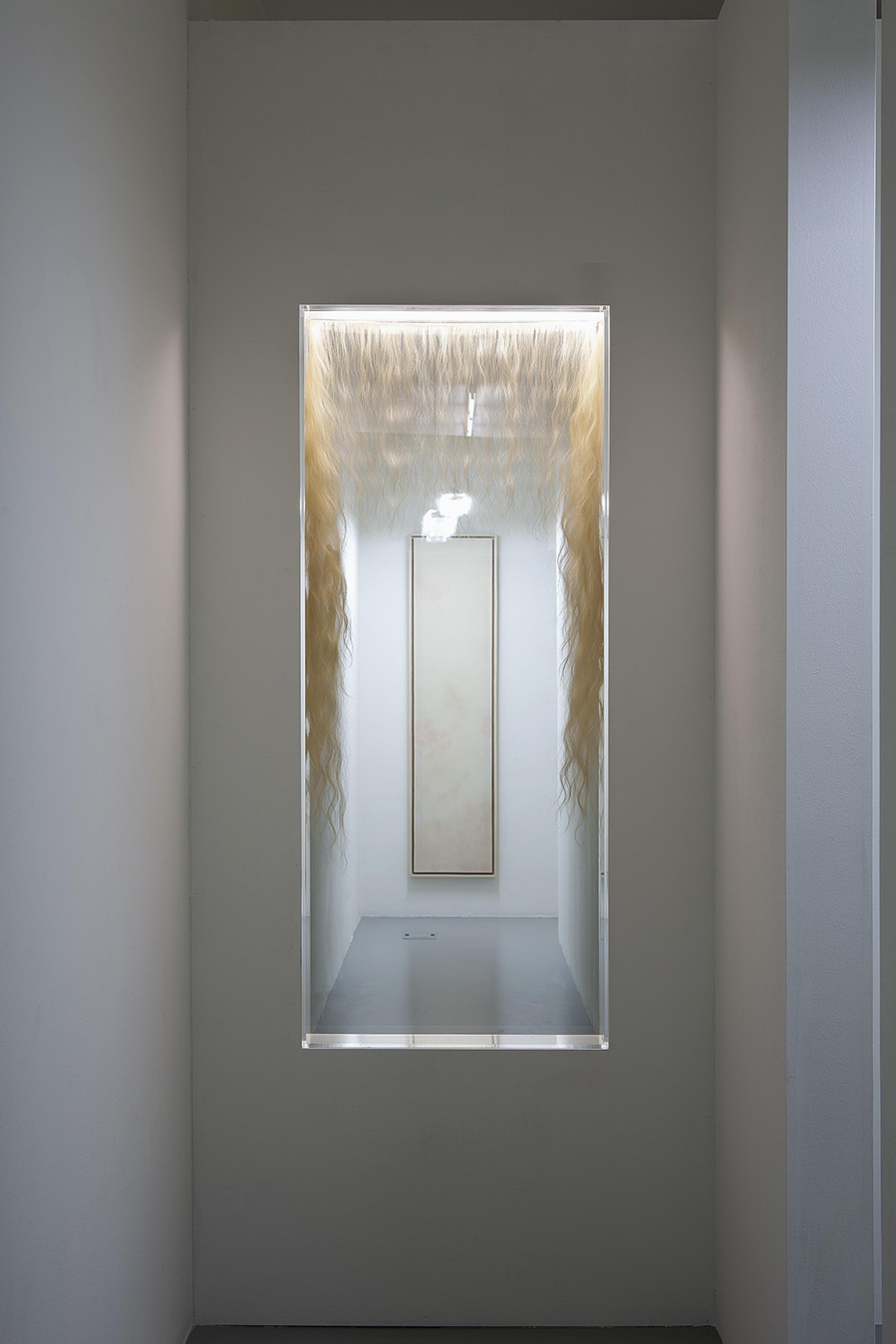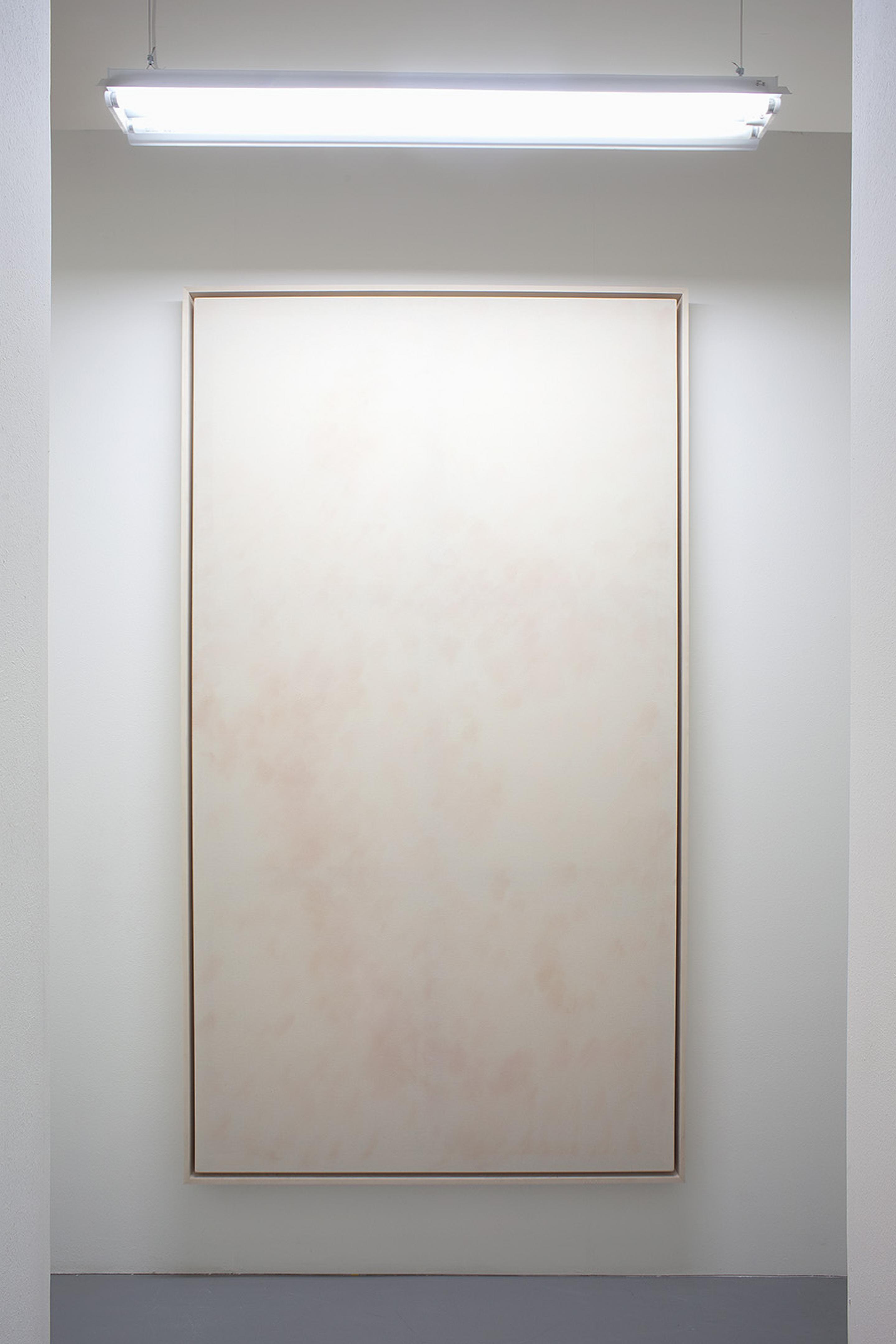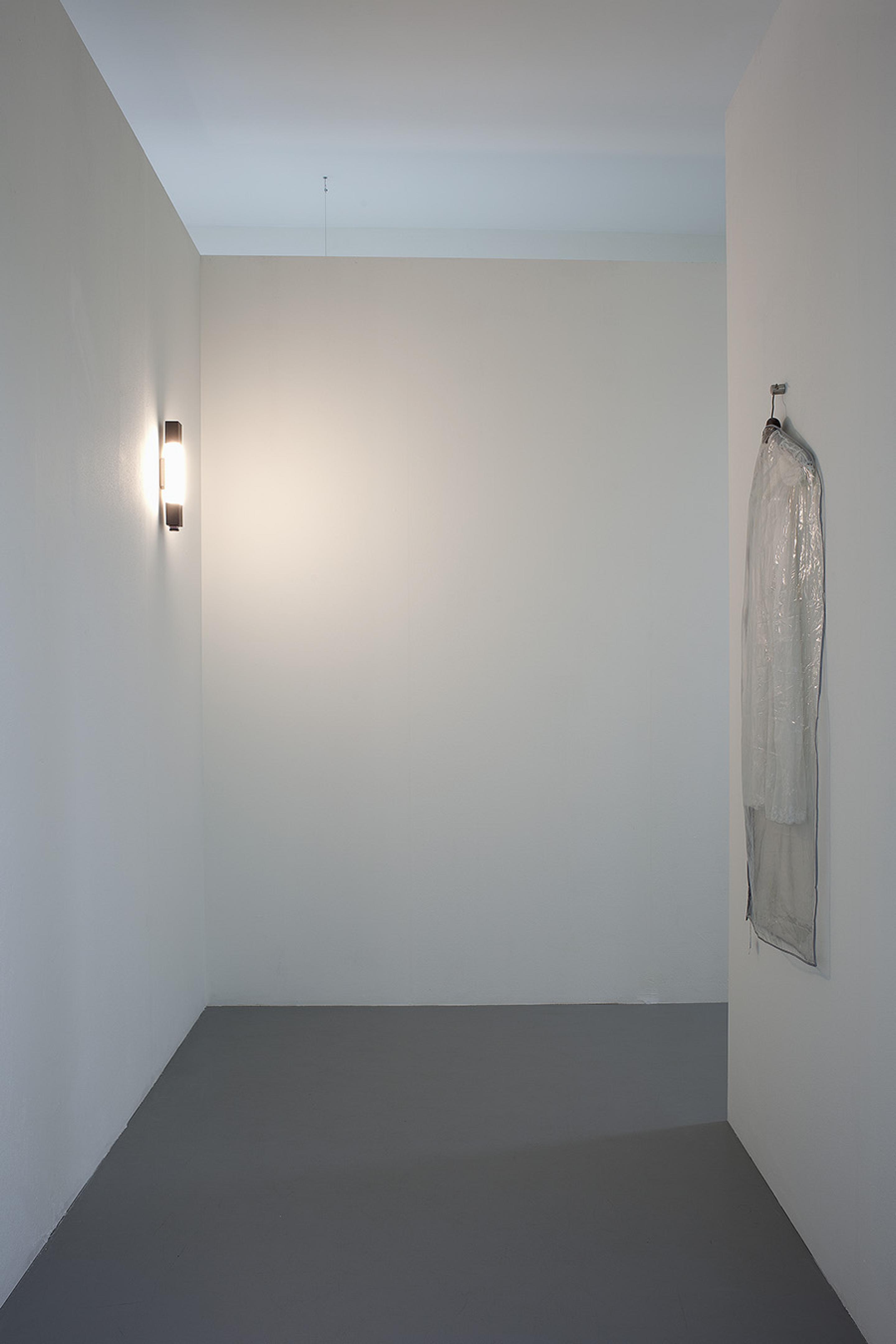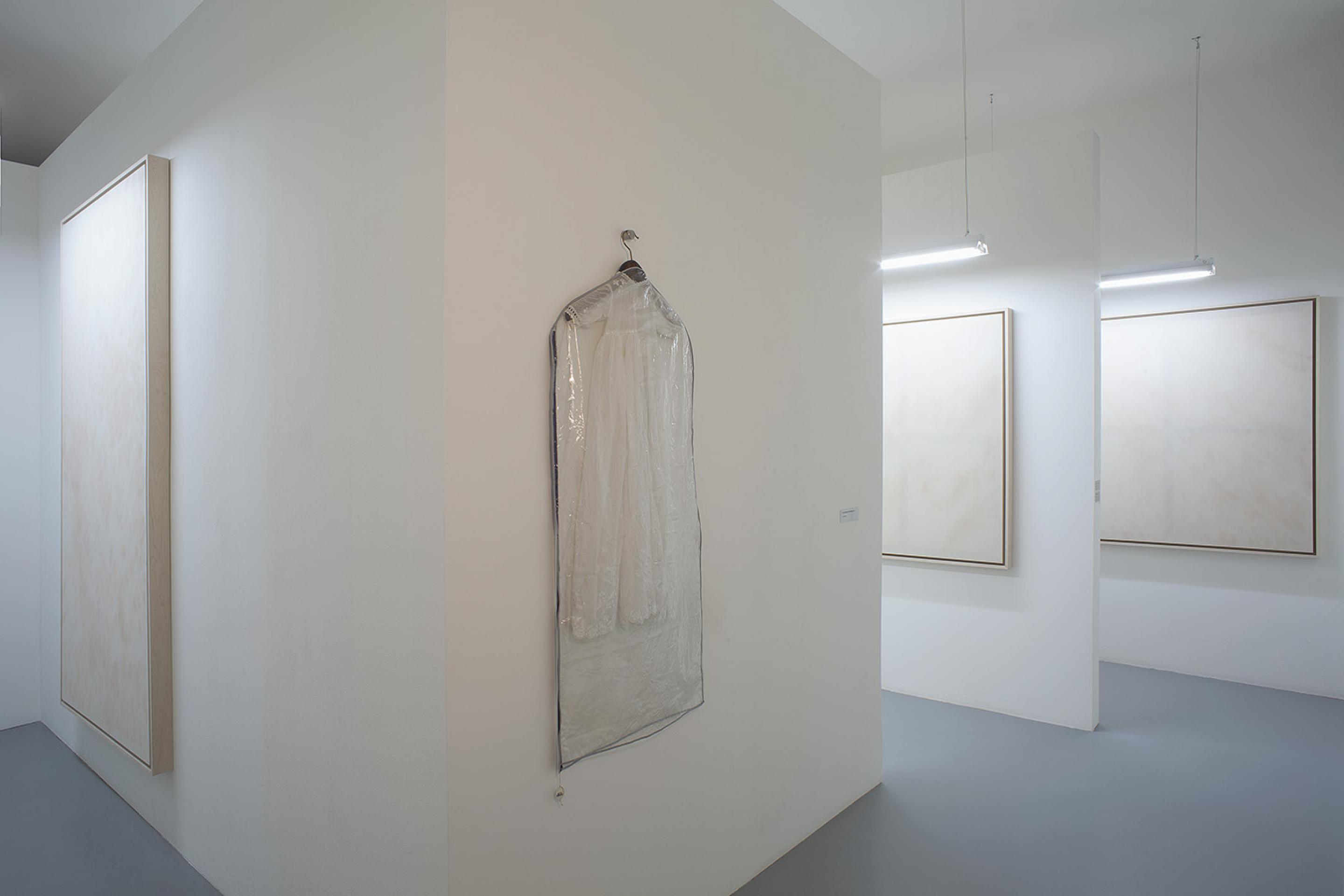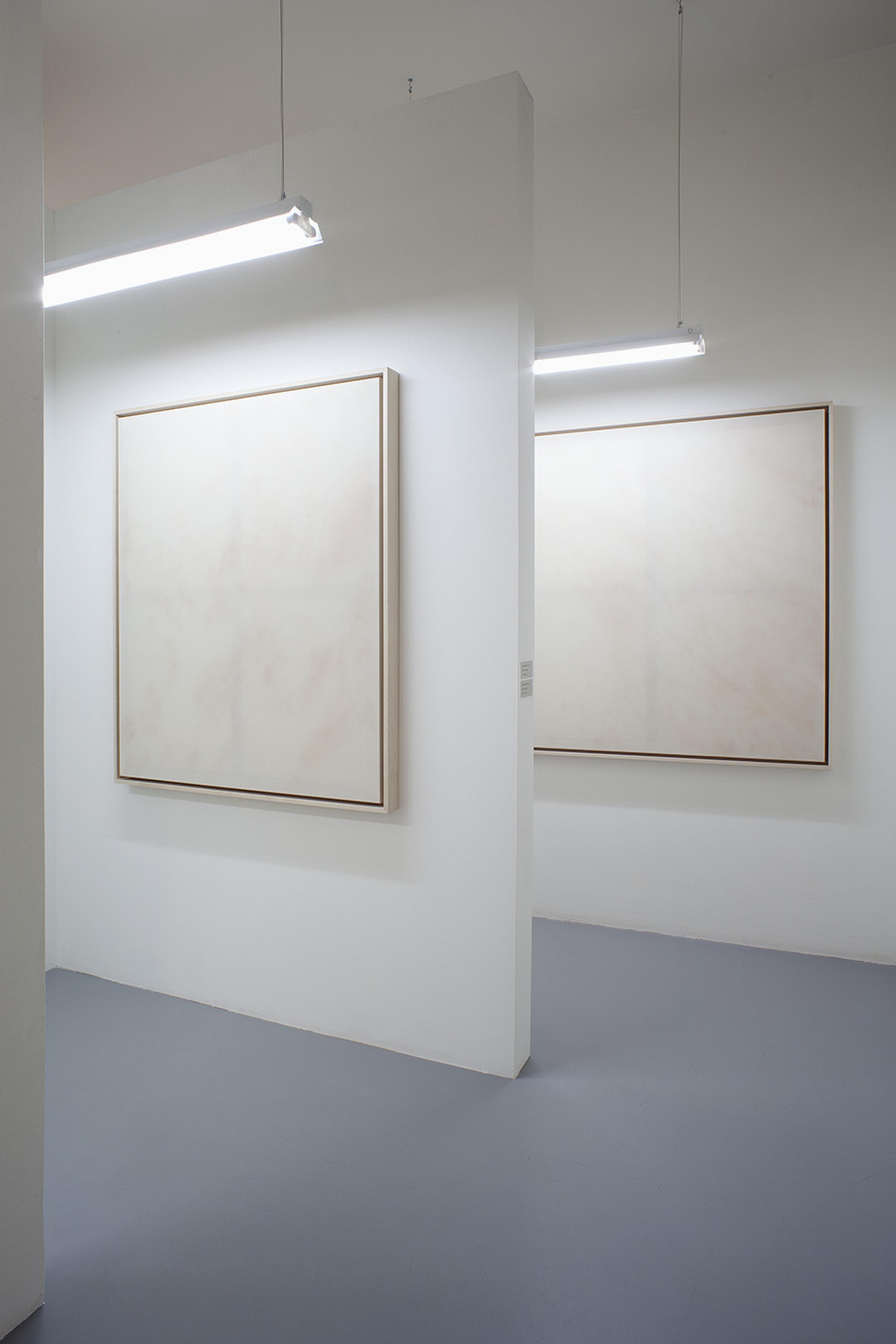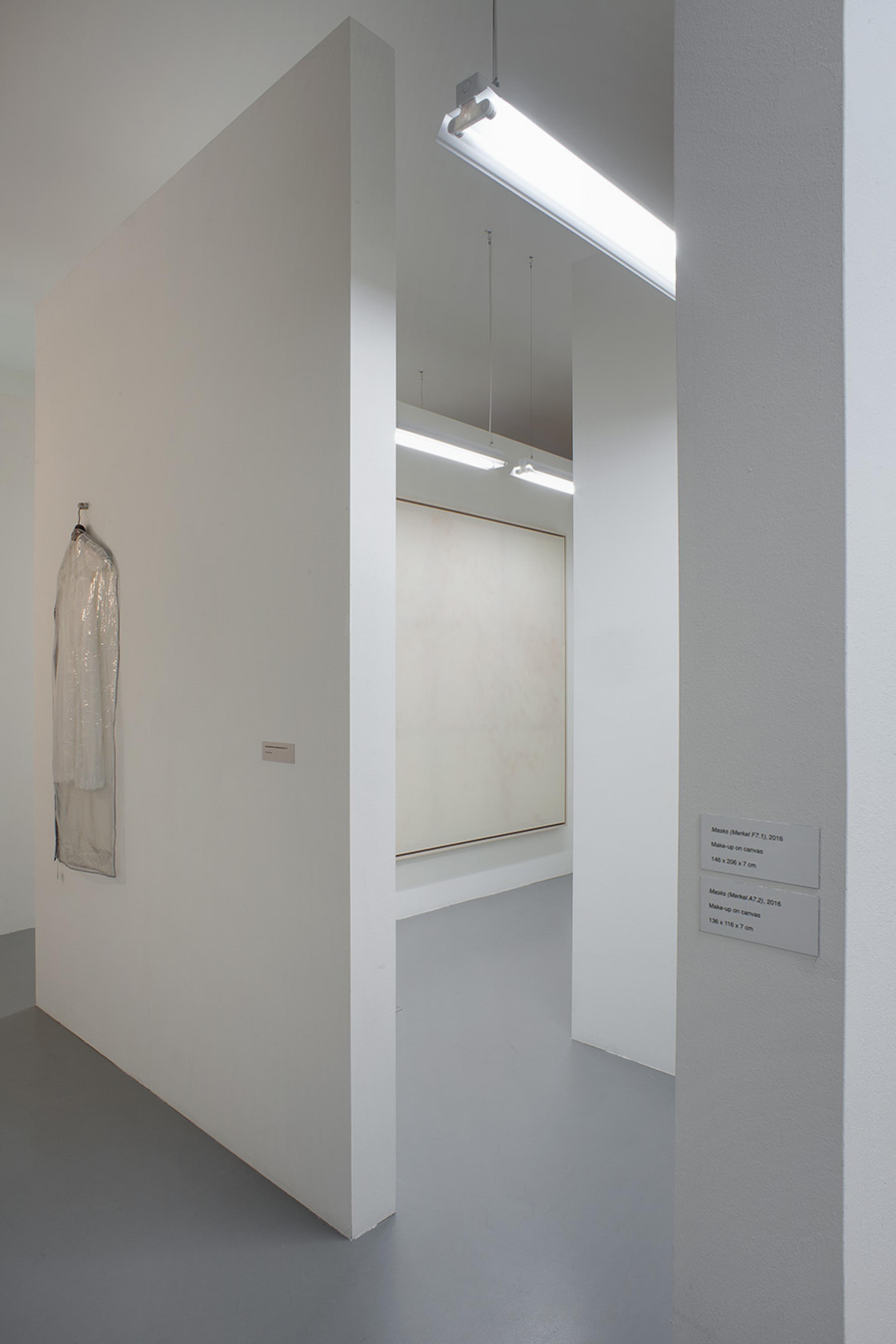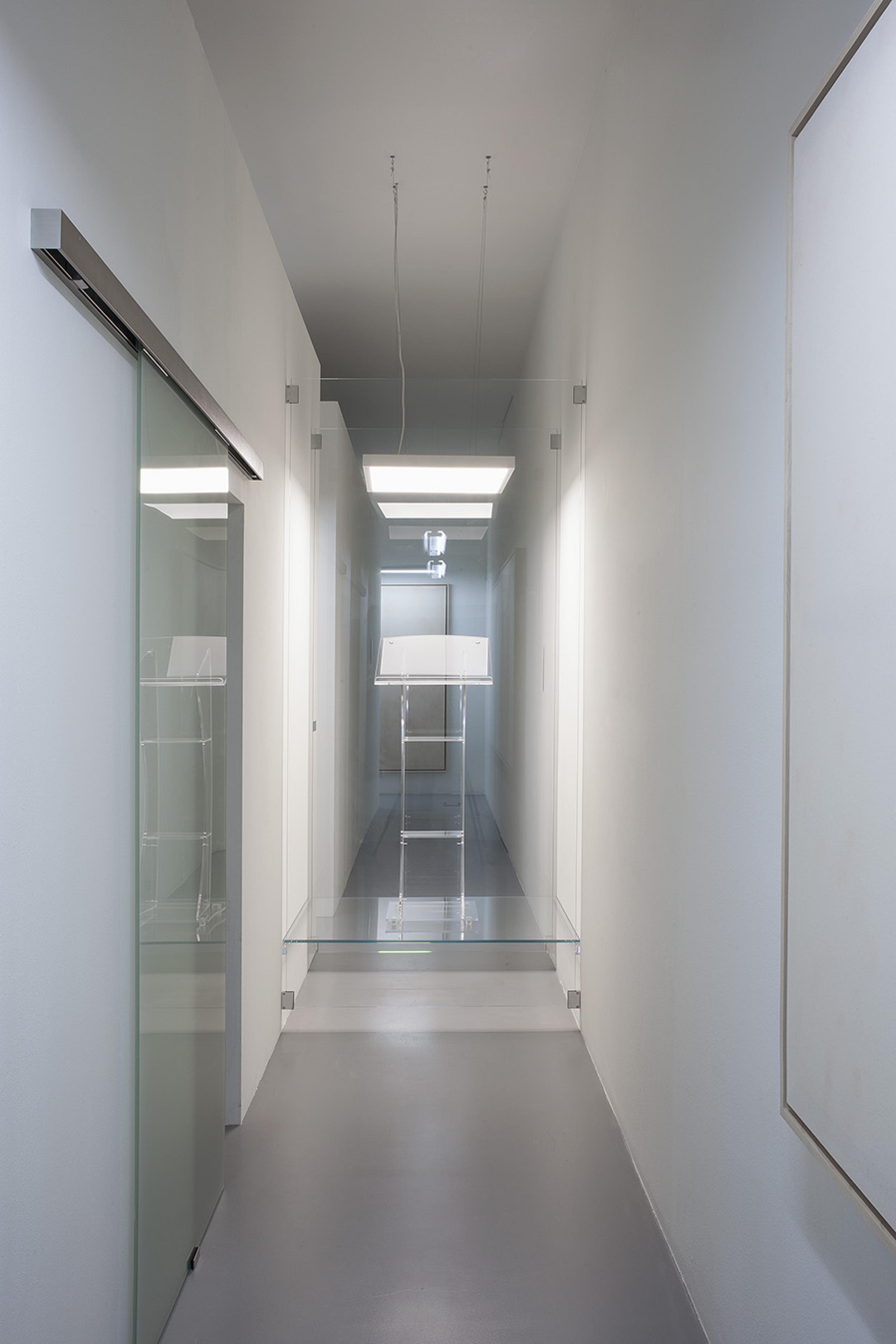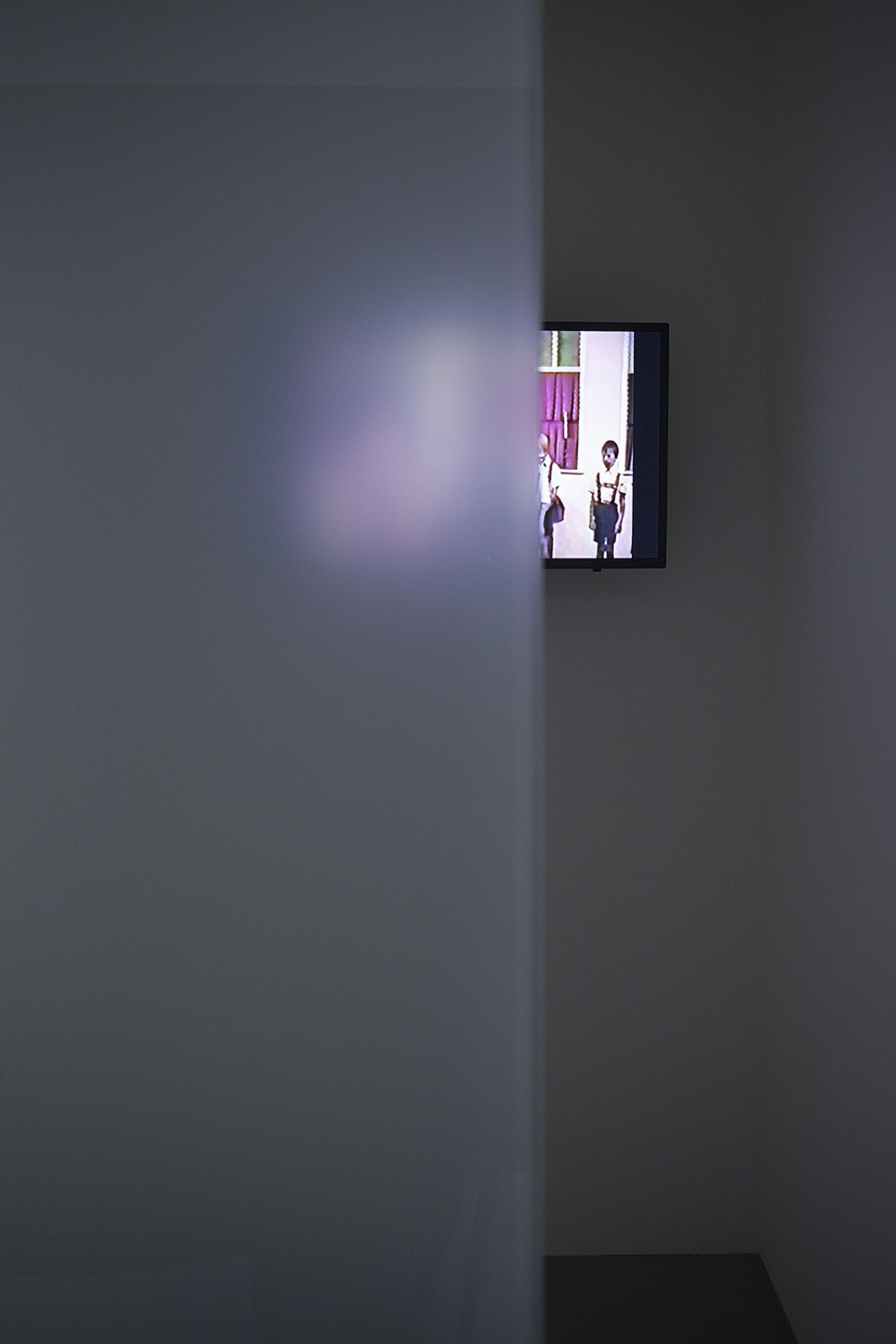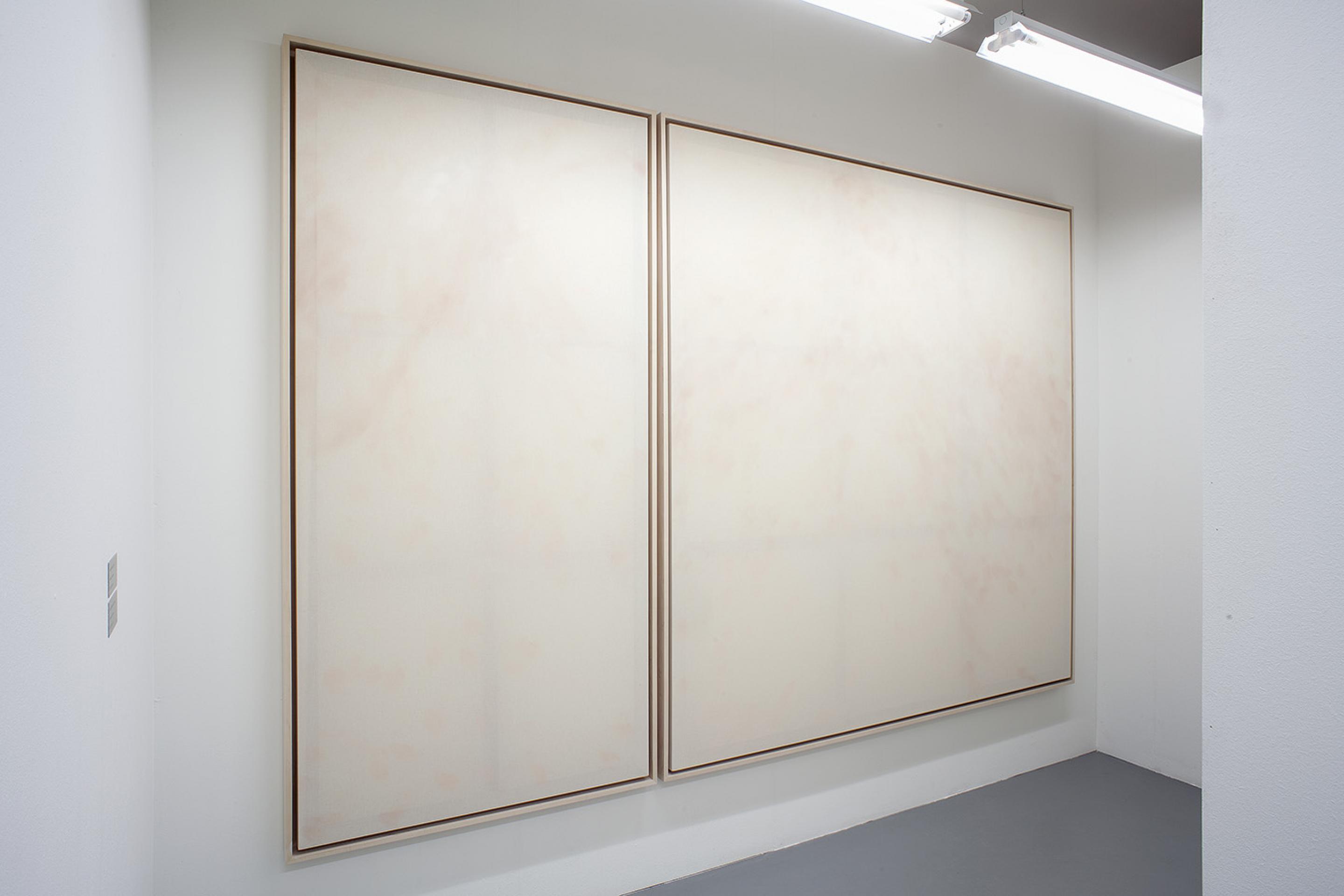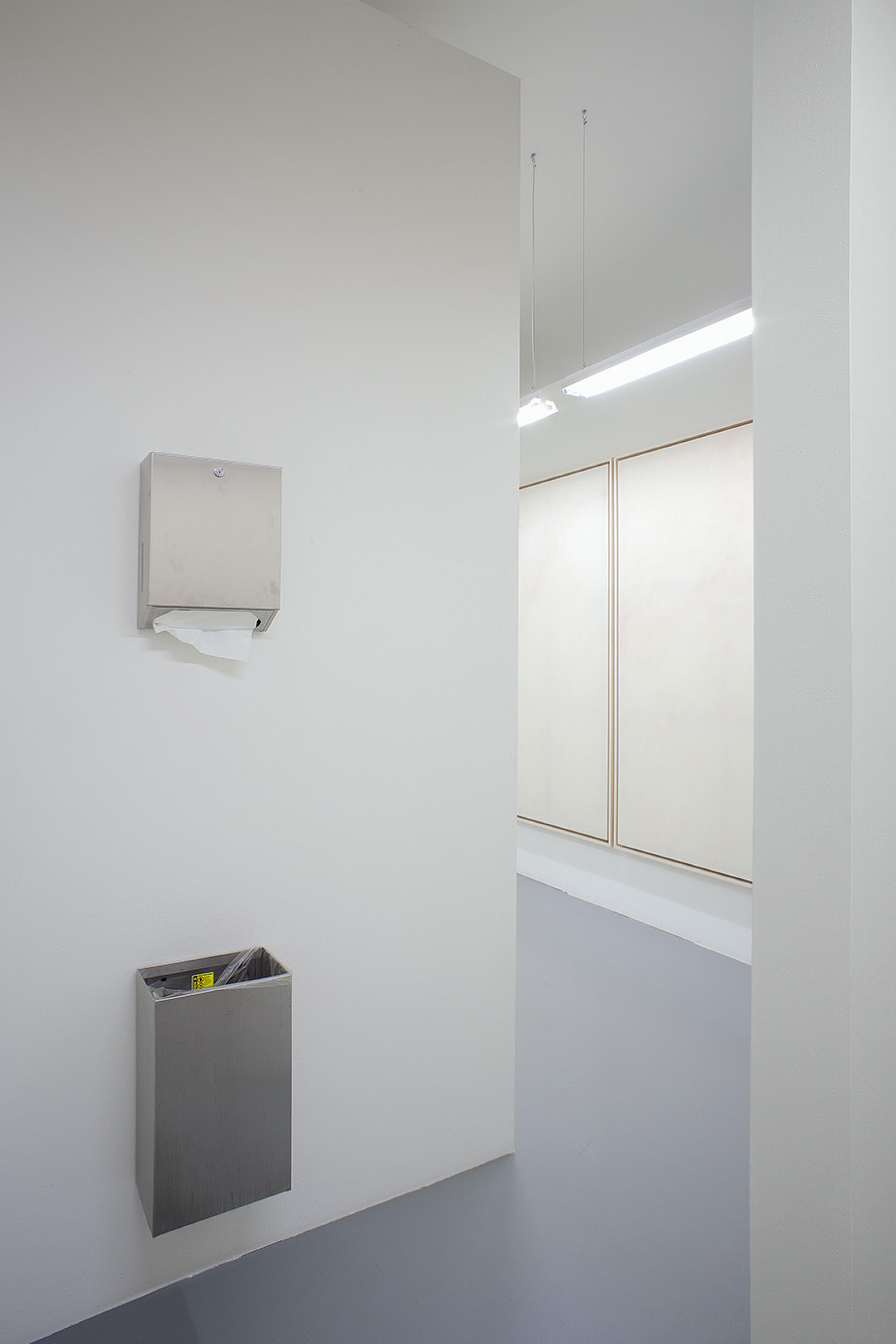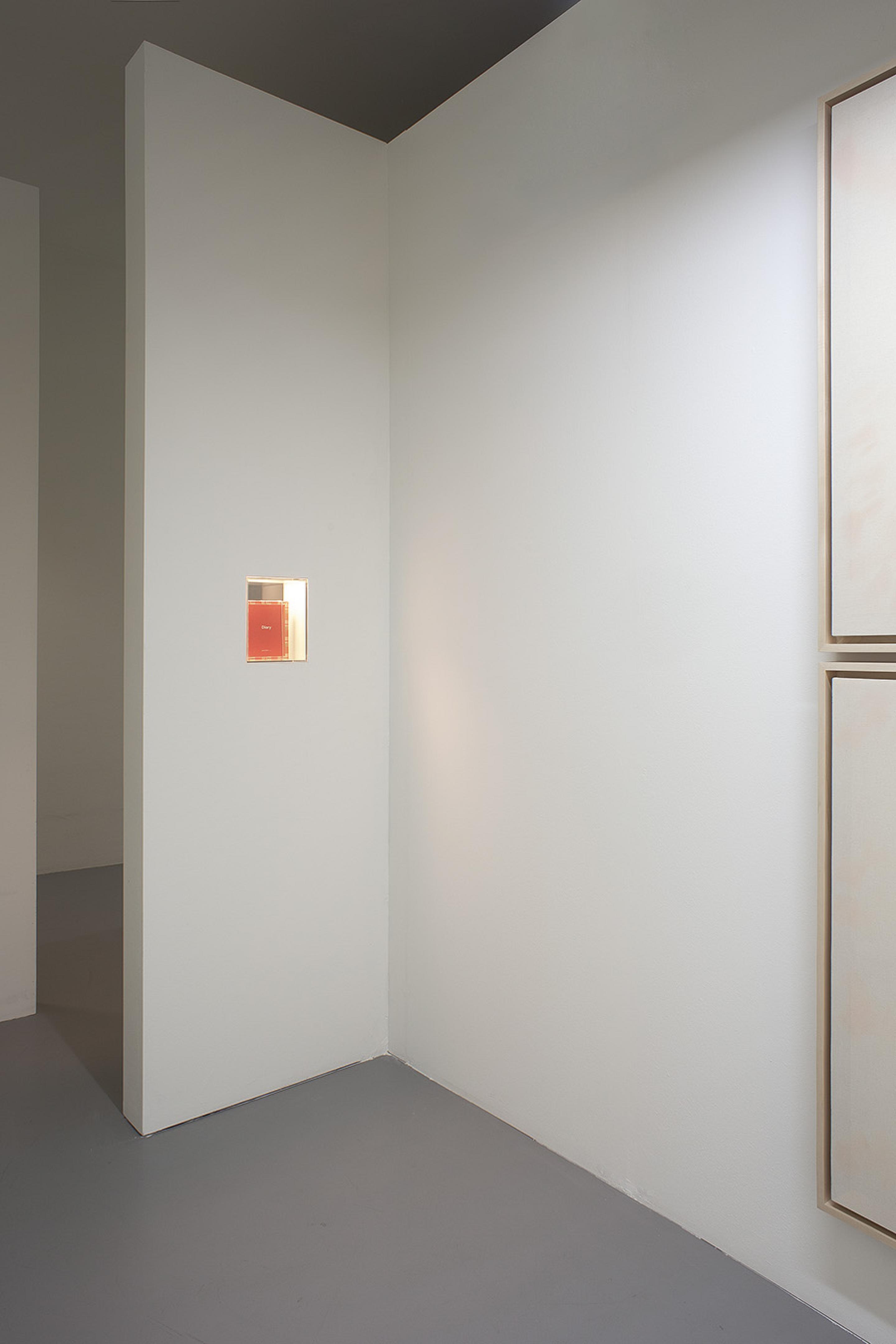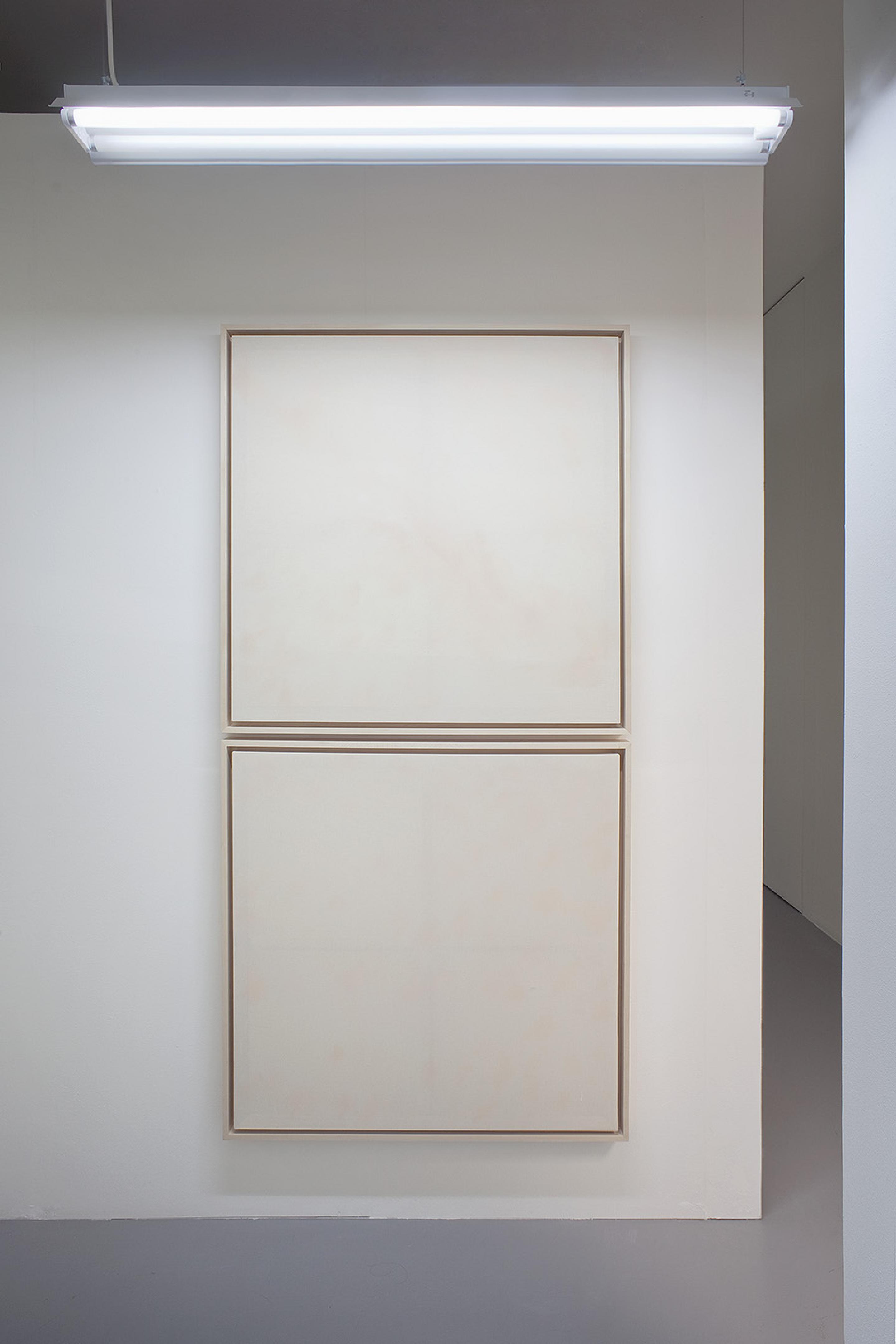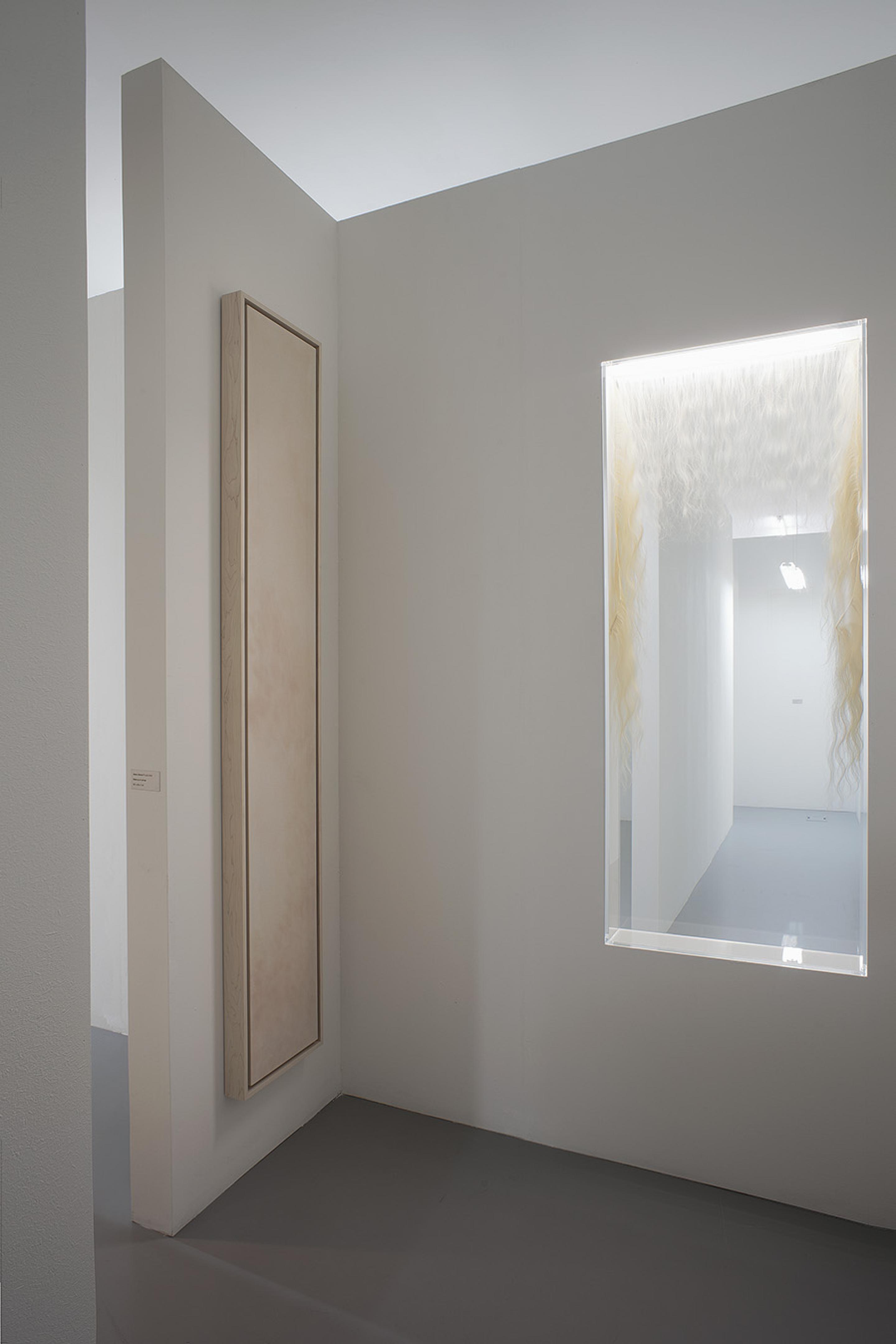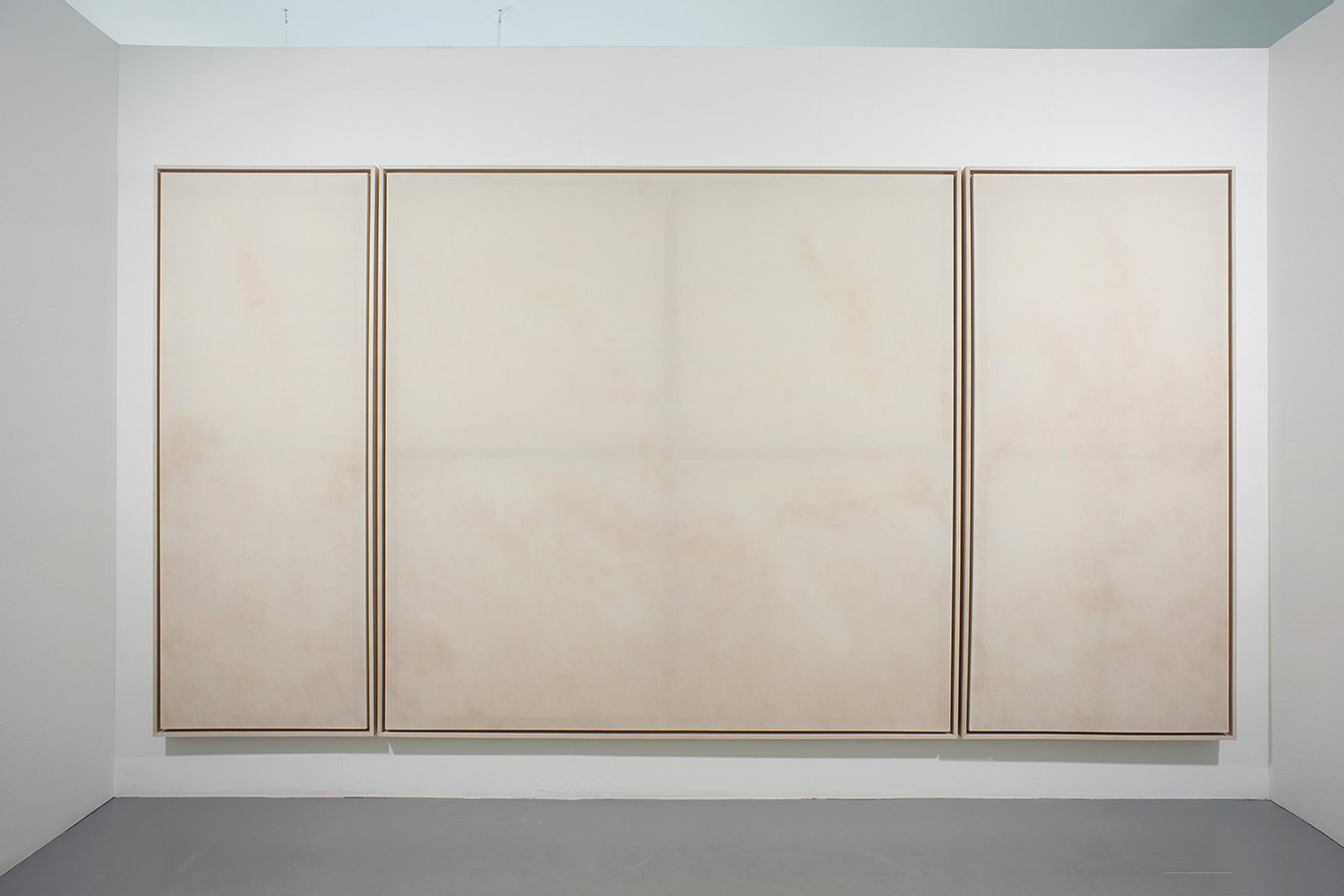SimonFUJIWARA
Heaven
Gió Marconi, Milan
31.05.–22.09.2017
Heaven
Gió Marconi, Milan
31.05.–22.09.2017
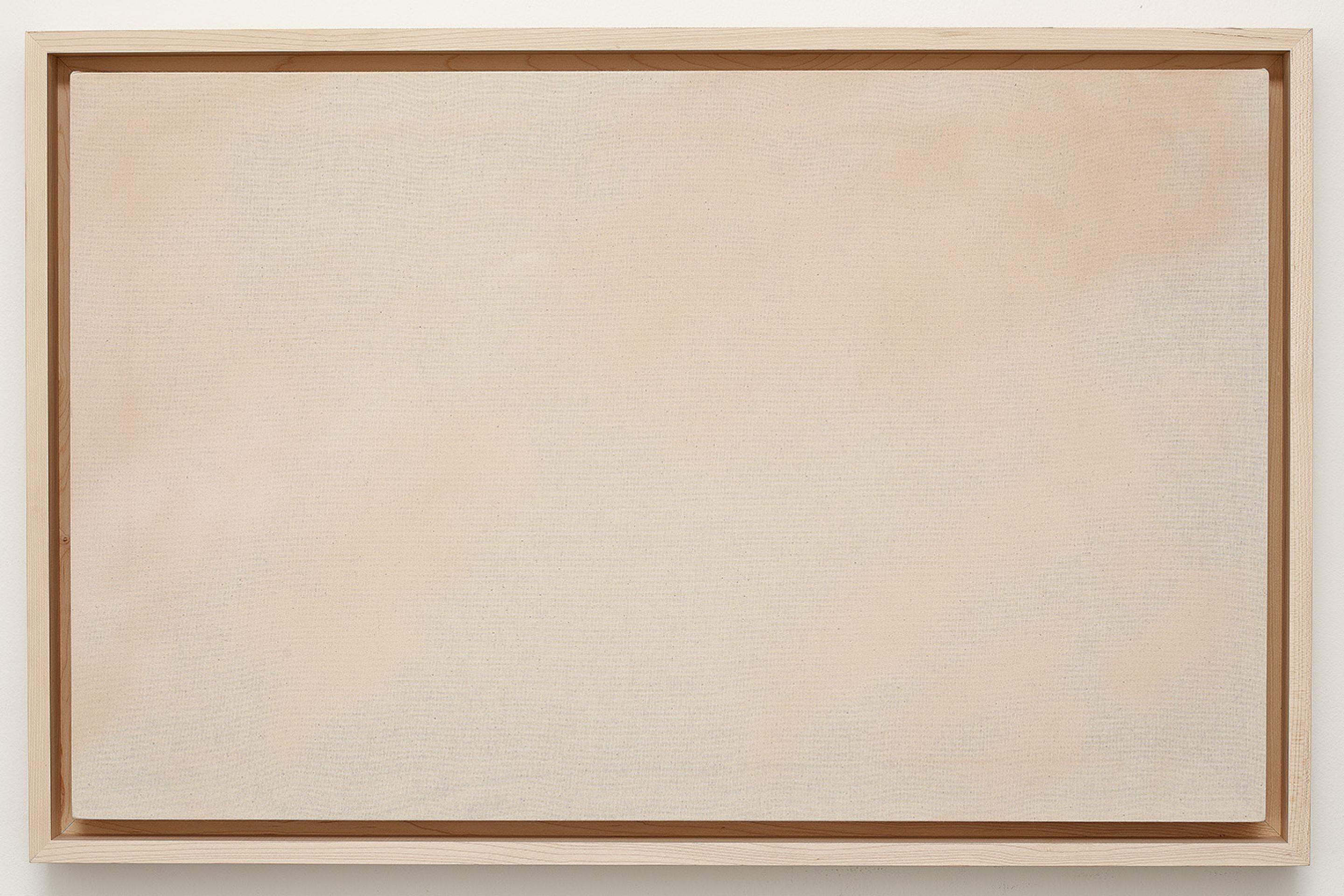
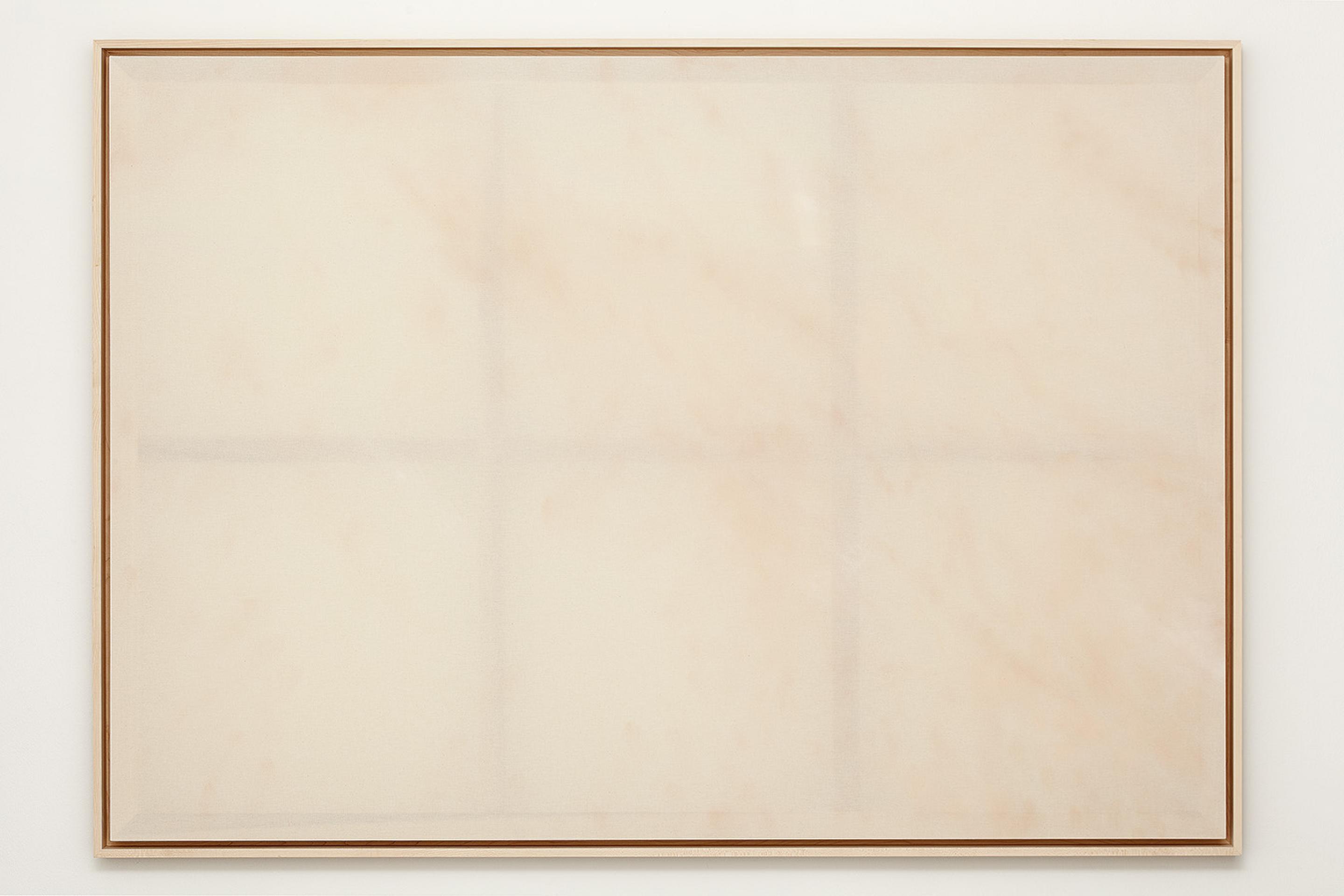
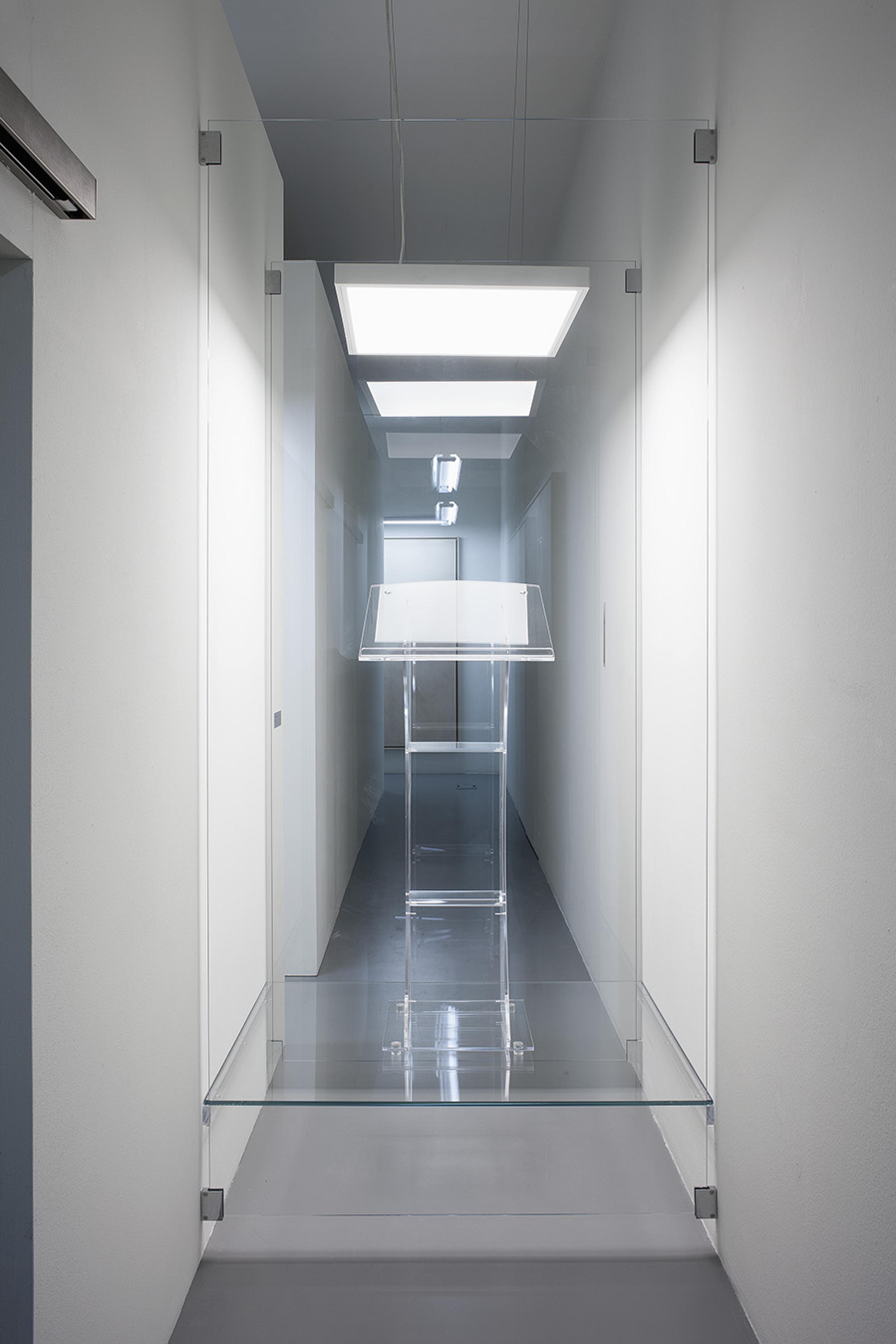
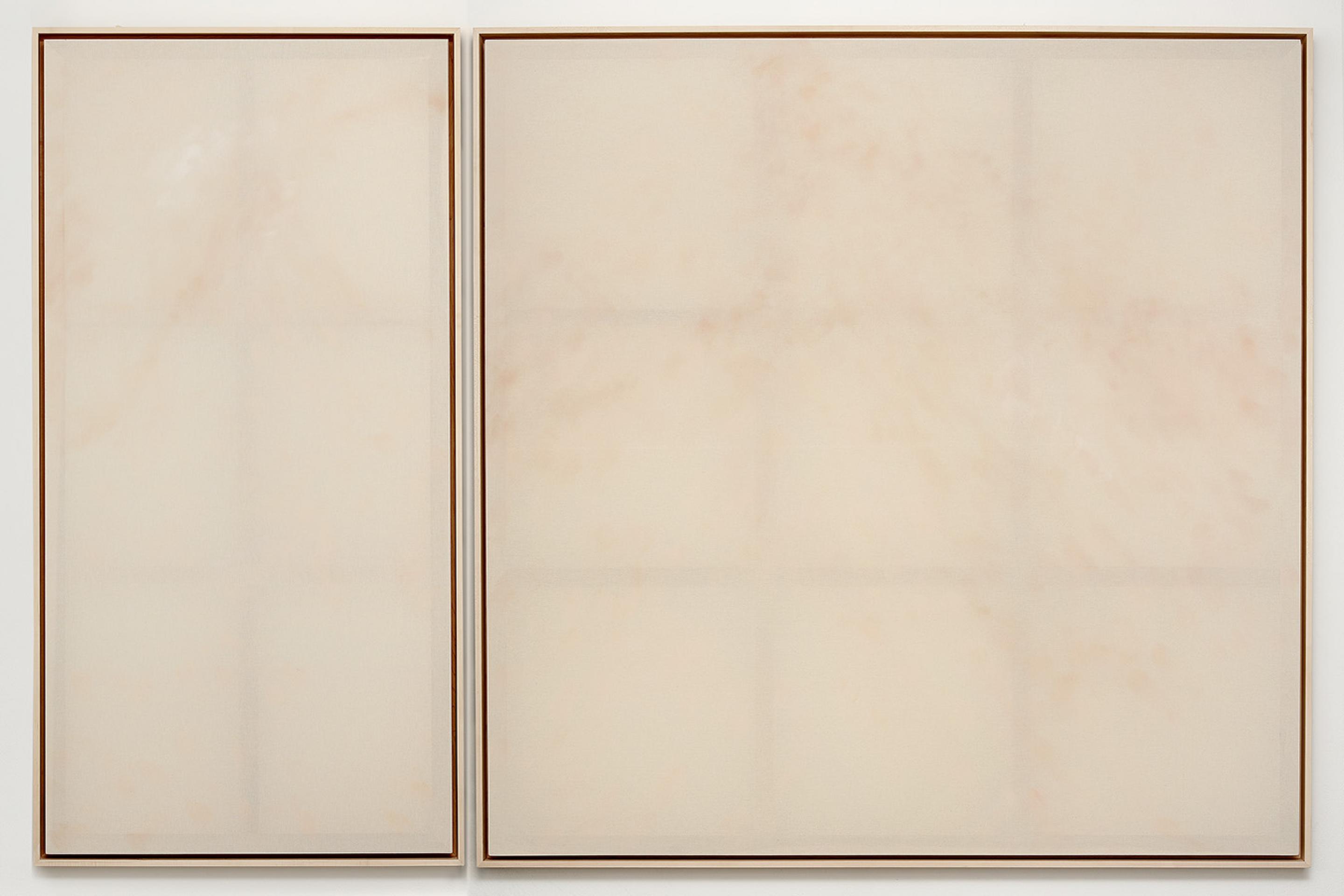
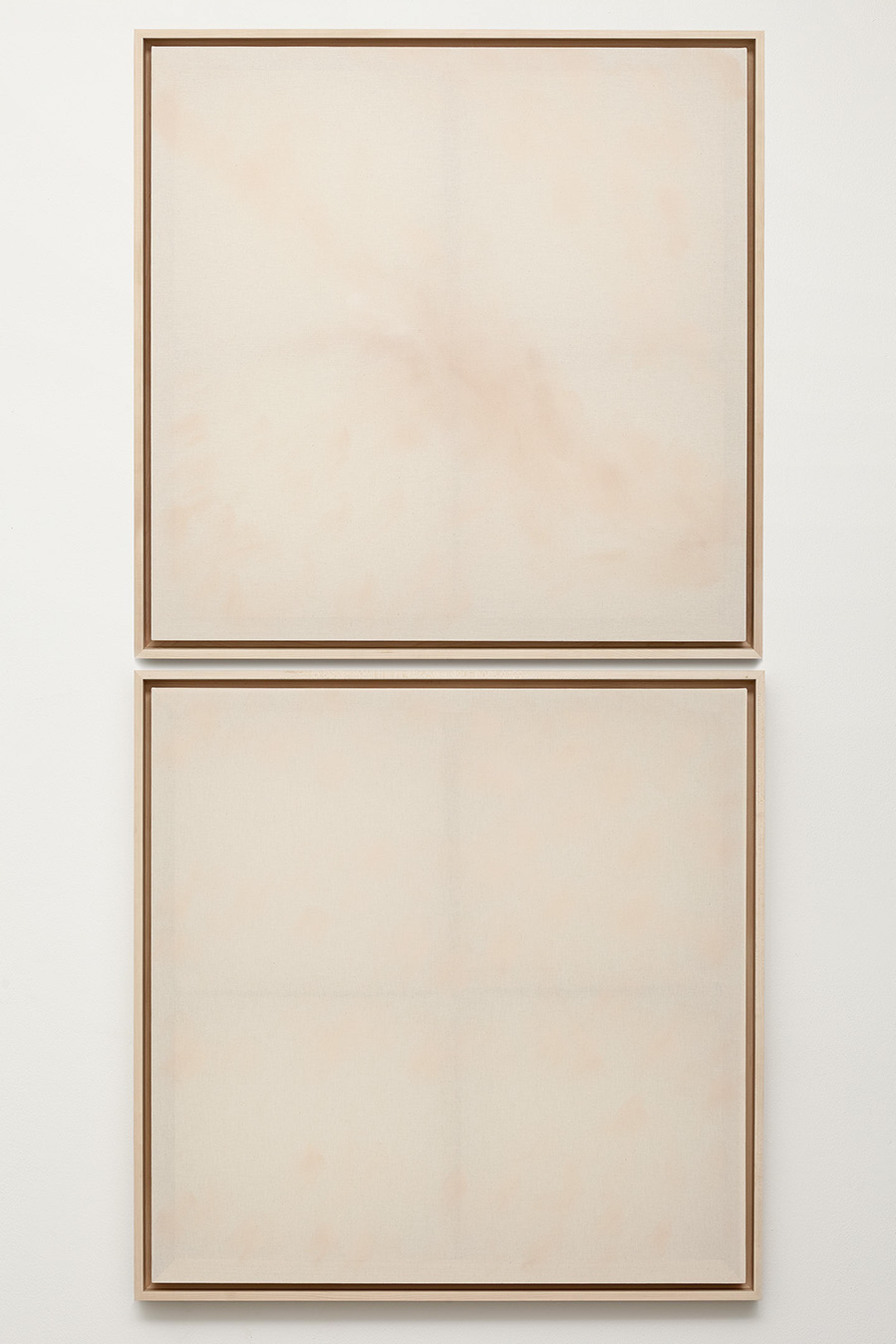
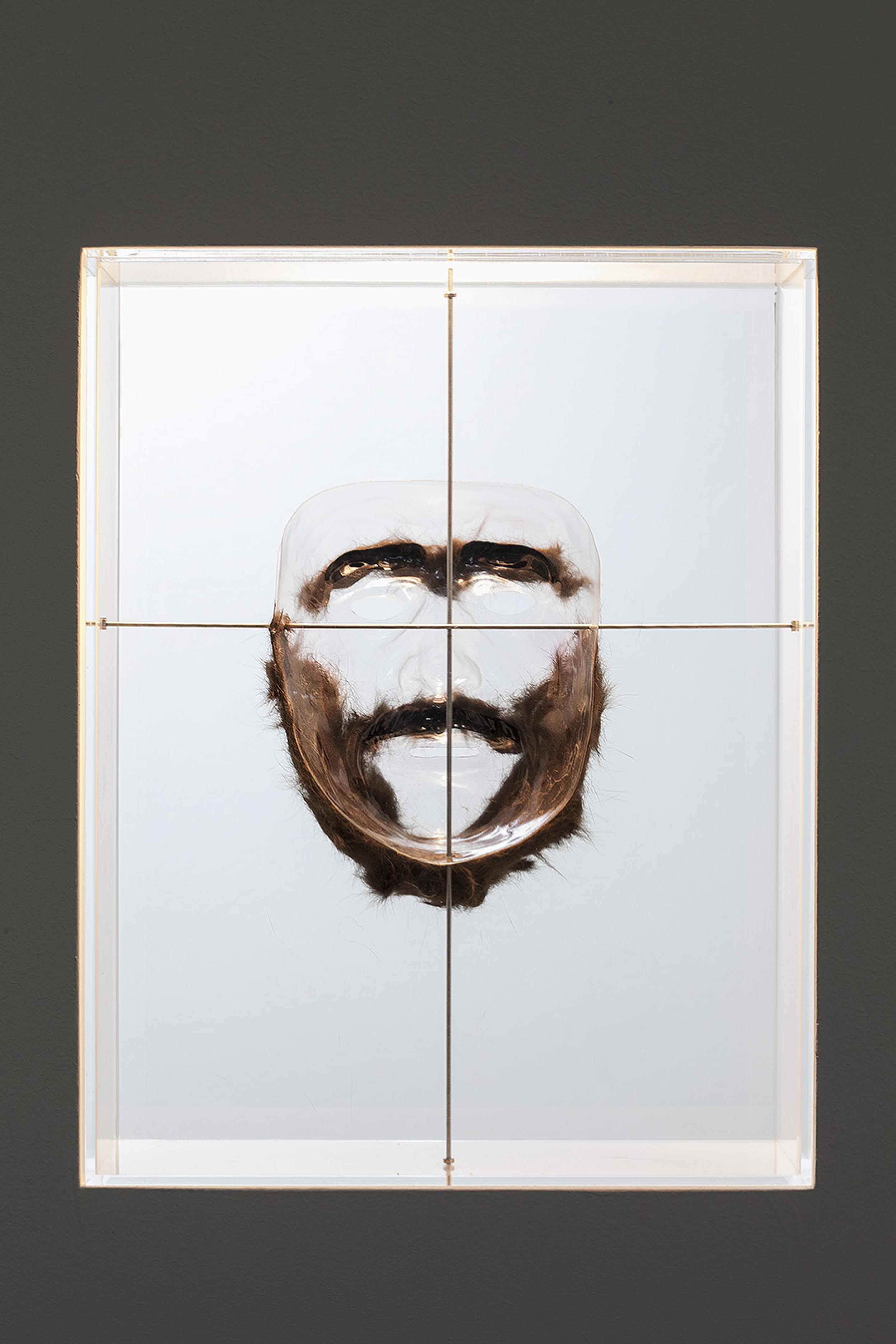
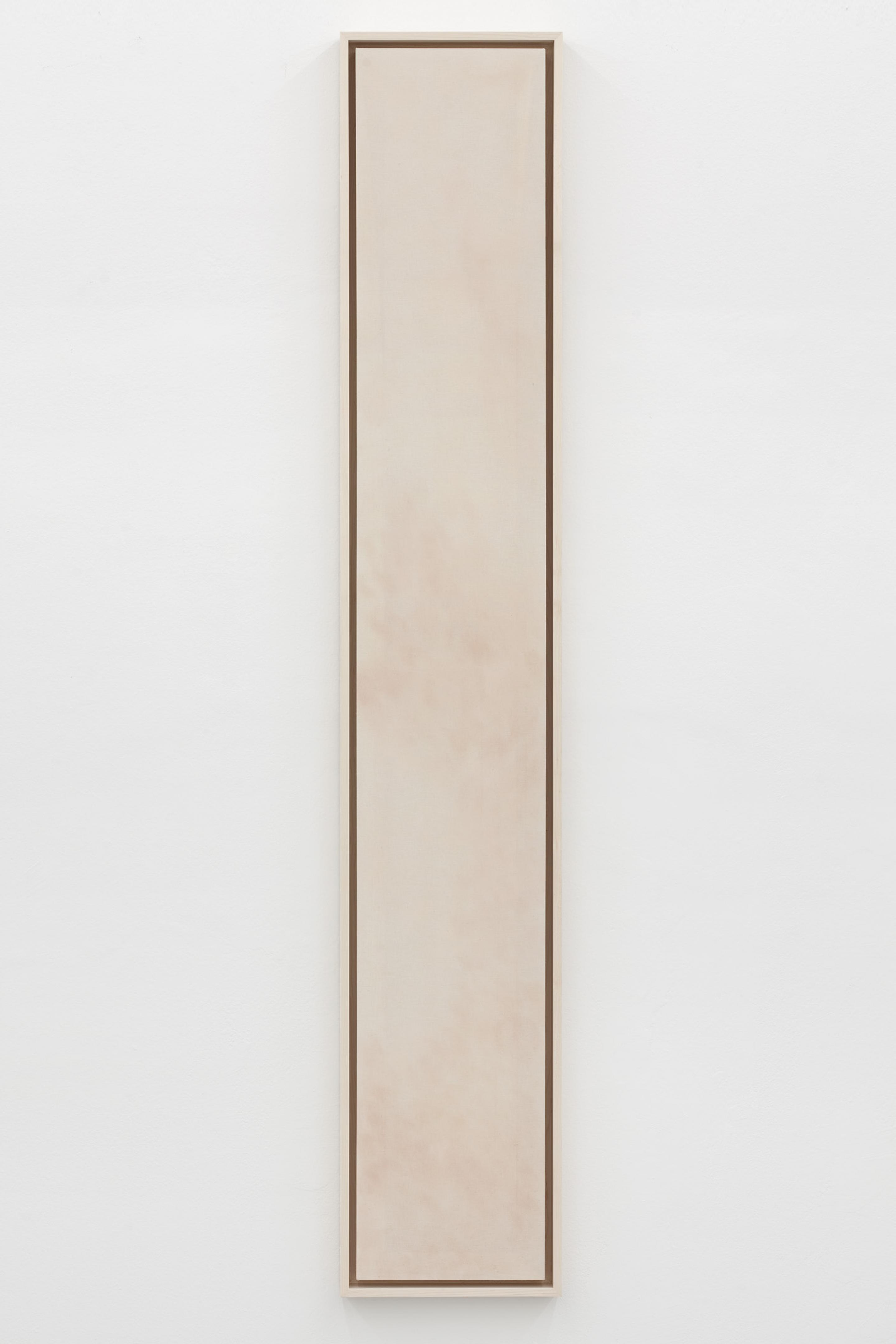
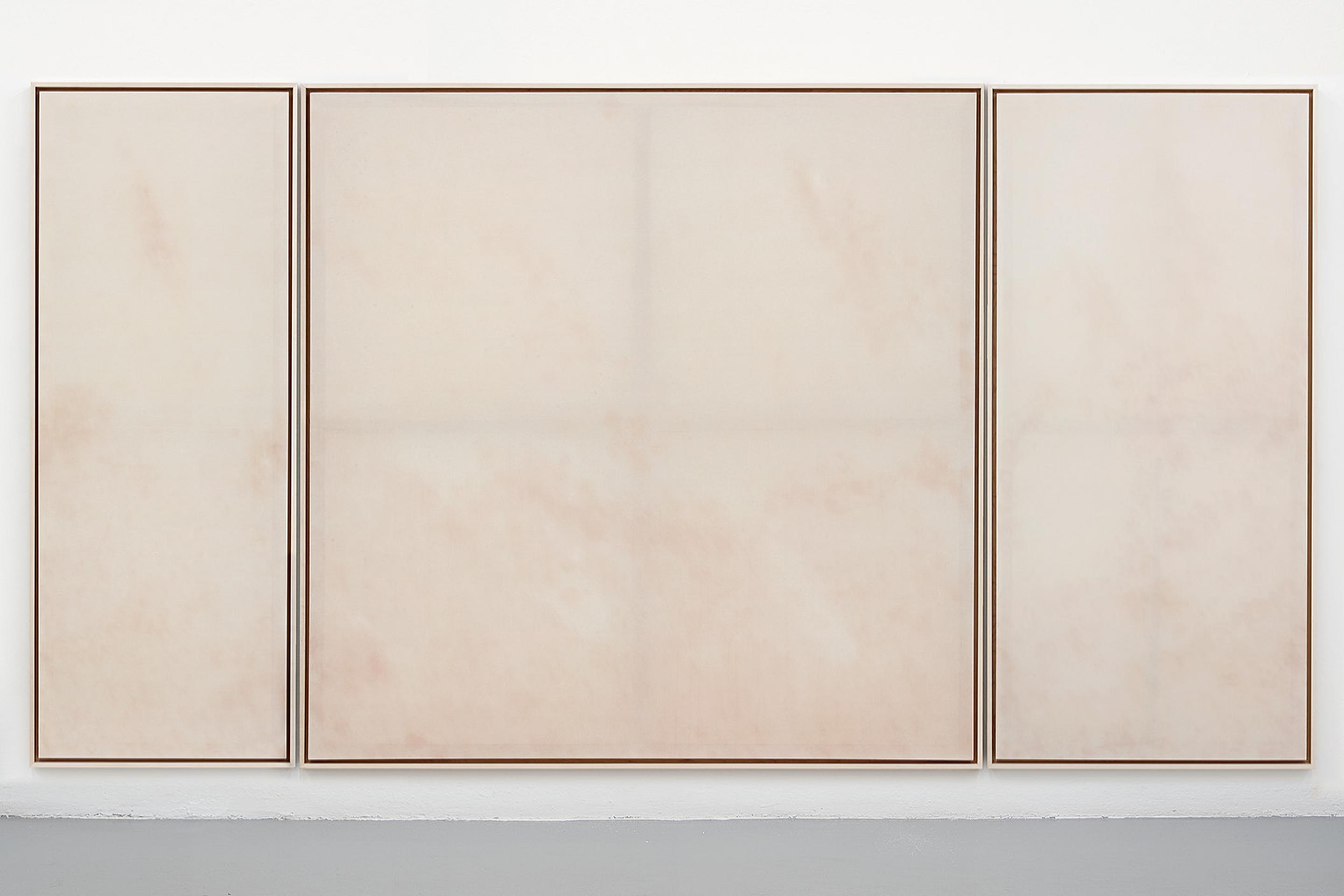
1/8
Simon Fujiwara
Masks (Merkel F8.2), 2016
Make-up on canvas
80 x 50.2 x 4.5 cm
86 x 56 x 7 cm (framed)
Masks (Merkel F8.2), 2016
Make-up on canvas
80 x 50.2 x 4.5 cm
86 x 56 x 7 cm (framed)
IT
Simon Fujiwara
Heaven
Inaugurazione: martedì 30 maggio dalle 19 alle 21
31 maggio - 22 settembre 2017
lunedì - venerdì; 11-19
“Heaven” è una mostra presentata all’interno di un labirinto scultoreo contenente una serie di lavori recenti che guidano il visitatore all’interno dello spazio della galleria fino a una camera segreta. Percorrendo il labirinto, i visitatori incontrano continuamente i dipinti della serie Masks (Merkel) 2015 – un corpo di lavori su tela di lino raffiguranti il volto di Angela Merkel, realizzati con gli stessi prodotti di make up abitualmente utilizzati dalla Cancelliera tedesca. Fujiwara ha incontrato la truccatrice della Merkel durante una ripresa cinematografica e l’ha invitata nel suo studio, dove ha realizzato un ritratto della premier tedesca servendosi dei suoi prodotti di make up. Fujiwara ha ingrandito questo ritratto di 1000 volte e ha iniziato a riprodurre, in sezioni e a mano, il volto della Cancelliera con gli stessi identici cosmetici, andando a creare “un’immagine frammentata e pixelata del leader iconico, che è troppo ingrandita e troppo ravvicinata per essere compresa come un’immagine”. Sebbene a prima vista le tele sembrino richiamare l’attenzione come opere singole, l’artista considera i lavori come “documenti fattuali e materiali”, una versione del 21° secolo della Sacra Sindone che un tempo avvolse il corpo di Cristo. All’interno di questa mostra è rappresentato circa il 20% del volto della Merkel.
Il labirinto, completato da interventi architettonici e luci che si attivano al passaggio del visitatore, genera un senso di scelta, partecipazione e consapevolezza fisica. Le voci di un coro di bambini che cantano risuona attraverso gli spazi bianchi da un video che presenta l’artista stesso all'età di dieci anni in un musical scolastico ispirato a “The Sound of Music”. Nel video Fujiwara recita il ruolo di Captain von Trapp, il capostipite di una famiglia austriaca sotto la minaccia dell'invasione nazista. La canzone “Edelweiss” - sebbene intesa come un canto di resistenza - diventa una ballata estremamente nazionalistica interpretata dal giovane artista giapponese in Inghilterra all'inizio degli anni Novanta.
Insieme al corpo di opere Masks Fujiwara presenta una serie di readymade appartenenti al ciclo di lavori intitolato Innocent Materials. Qui Fujiwara pone il visitatore di fronte ad un interrogativo filosofico sulla scultura: può un materiale essere libero da implicazioni politiche ed economiche? Può il materiale stesso essere colpevole? Una bionda parrucca artificiale presentata sia come una porta accogliente che come un reliquiario sigillato, una candida veste battesimale, una copia del diario di Anne Frank, venduta come merchandising con pagine bianche da completare e il leggio trasparente di un leader politico sono tra gli elementi che fanno capolino nello spazio. Per Fujiwara questi oggetti incarnano i valori contradditori del capitalismo democratico, posseduti dalla sua stessa immagine di libertà e partecipazione ma essenzialmente controllati e chiusi, sensuali ed emotivamente evocativi e al tempo stesso mercificabili. Tutti insieme questi lavori creano un’esperienza scultorea, che è al tempo stesso coinvolgente e ripetitiva, un viaggio attraverso un paesaggio che sembra offrire delle scelte ma che è in realtà indifferente al visitatore. Se il paradiso è davvero un luogo esistente, che cosa esiste lì? E qual è il prezzo che dobbiamo pagare per proteggerlo?
Heaven
know not of the reason
Why I’m so sad at heart.
A tale of bygone ages
Haunts me and won’t depart.
The air is cool at nightfall
The Rhine courses its way.
The mountain’s peak does sparkle
With evening’s final ray.
The fairest of the maidens
So marvelous up there,
Her golden jewels are shining,
She combs her golden hair.
And with her comb so golden,
she sings a song as well
Whose melody is binding
And overpowering spell.
Now in his boat, the boatman
Is seized with savage woe,
He looks up at the mountain
And shuns the rocks below.
So when the waves devour
The boat and man as one;
She sings her final words tonight;
“Fair Lorelei is done”
Adapted from a poem by Heinrich Heine, 1822
Heaven
Inaugurazione: martedì 30 maggio dalle 19 alle 21
31 maggio - 22 settembre 2017
lunedì - venerdì; 11-19
“Heaven” è una mostra presentata all’interno di un labirinto scultoreo contenente una serie di lavori recenti che guidano il visitatore all’interno dello spazio della galleria fino a una camera segreta. Percorrendo il labirinto, i visitatori incontrano continuamente i dipinti della serie Masks (Merkel) 2015 – un corpo di lavori su tela di lino raffiguranti il volto di Angela Merkel, realizzati con gli stessi prodotti di make up abitualmente utilizzati dalla Cancelliera tedesca. Fujiwara ha incontrato la truccatrice della Merkel durante una ripresa cinematografica e l’ha invitata nel suo studio, dove ha realizzato un ritratto della premier tedesca servendosi dei suoi prodotti di make up. Fujiwara ha ingrandito questo ritratto di 1000 volte e ha iniziato a riprodurre, in sezioni e a mano, il volto della Cancelliera con gli stessi identici cosmetici, andando a creare “un’immagine frammentata e pixelata del leader iconico, che è troppo ingrandita e troppo ravvicinata per essere compresa come un’immagine”. Sebbene a prima vista le tele sembrino richiamare l’attenzione come opere singole, l’artista considera i lavori come “documenti fattuali e materiali”, una versione del 21° secolo della Sacra Sindone che un tempo avvolse il corpo di Cristo. All’interno di questa mostra è rappresentato circa il 20% del volto della Merkel.
Il labirinto, completato da interventi architettonici e luci che si attivano al passaggio del visitatore, genera un senso di scelta, partecipazione e consapevolezza fisica. Le voci di un coro di bambini che cantano risuona attraverso gli spazi bianchi da un video che presenta l’artista stesso all'età di dieci anni in un musical scolastico ispirato a “The Sound of Music”. Nel video Fujiwara recita il ruolo di Captain von Trapp, il capostipite di una famiglia austriaca sotto la minaccia dell'invasione nazista. La canzone “Edelweiss” - sebbene intesa come un canto di resistenza - diventa una ballata estremamente nazionalistica interpretata dal giovane artista giapponese in Inghilterra all'inizio degli anni Novanta.
Insieme al corpo di opere Masks Fujiwara presenta una serie di readymade appartenenti al ciclo di lavori intitolato Innocent Materials. Qui Fujiwara pone il visitatore di fronte ad un interrogativo filosofico sulla scultura: può un materiale essere libero da implicazioni politiche ed economiche? Può il materiale stesso essere colpevole? Una bionda parrucca artificiale presentata sia come una porta accogliente che come un reliquiario sigillato, una candida veste battesimale, una copia del diario di Anne Frank, venduta come merchandising con pagine bianche da completare e il leggio trasparente di un leader politico sono tra gli elementi che fanno capolino nello spazio. Per Fujiwara questi oggetti incarnano i valori contradditori del capitalismo democratico, posseduti dalla sua stessa immagine di libertà e partecipazione ma essenzialmente controllati e chiusi, sensuali ed emotivamente evocativi e al tempo stesso mercificabili. Tutti insieme questi lavori creano un’esperienza scultorea, che è al tempo stesso coinvolgente e ripetitiva, un viaggio attraverso un paesaggio che sembra offrire delle scelte ma che è in realtà indifferente al visitatore. Se il paradiso è davvero un luogo esistente, che cosa esiste lì? E qual è il prezzo che dobbiamo pagare per proteggerlo?
Heaven
know not of the reason
Why I’m so sad at heart.
A tale of bygone ages
Haunts me and won’t depart.
The air is cool at nightfall
The Rhine courses its way.
The mountain’s peak does sparkle
With evening’s final ray.
The fairest of the maidens
So marvelous up there,
Her golden jewels are shining,
She combs her golden hair.
And with her comb so golden,
she sings a song as well
Whose melody is binding
And overpowering spell.
Now in his boat, the boatman
Is seized with savage woe,
He looks up at the mountain
And shuns the rocks below.
So when the waves devour
The boat and man as one;
She sings her final words tonight;
“Fair Lorelei is done”
Adapted from a poem by Heinrich Heine, 1822
EN
Simon Fujiwara
Heaven
Opening Tuesday, May 30, 2017; 7pm - pm
May 31 - September 22, 2017
From Monday to Friday; 11am - 7pm
“Heaven” is an exhibition presented within a sculptural labyrinth, containing a series of recent works that lead the viewer through the gallery space to a secret chamber. Throughout the labyrinth viewers continuously encounter “paintings” from the series Masks (Merkel) 2015 – a set of works on linen depicting the face of Angela Merkel made with the make up products used by the German Chancellor herself. Fujiwara met the chancellor’s make up artist during a film shoot and invited her to his studio where she produced a portrait of Merkel using her make up. Fujiwara enlarged this portrait by 1000 times and began to reproduce, in sections and by hand, the chancellor’s face with the identical materials creating a “fragmented, pixelated image of the iconic leader that is too large and too close to comprehend as an image”. Although at first glance, the works appear to demand the viewer’s attention as individual paintings, the artist considers the works as “factual material documents”, a 21st century version of the Turin Shroud that allegedly once wrapped the body of Christ. In this exhibition approximately 20% of Merkel’s face is represented.
The labyrinth, complete with architectural interventions and body-triggered lights offers visitors a sense of choice, participation and physical recognition. The sound of singing children echoes through the white spaces, audio from a video document of the artist at the age of ten in a school musical adaptation of The Sound of Music. In the video Fujiwara plays Captain von Trapp, the patriarchal head of an Austrian family under threat from Nazi invasion. The song “Edelweiss” - although intended as a resistance song - is a highly nationalistic ballad sung by the young Japanese artist in Britain in the early 1990s.
Together with the Masks Fujiwara presents a series of readymade objects from a series titled Innocent Materials. Here Fujiwara asks a philosophical sculptural question: can material be innocent of political and economic associations? And if so, can material itself be guilty? A blonde, artificial hairpiece presented as both an inviting portal and a sealed reliquary, a freshly cleaned baby christening dress, a replica of the Anne Frank diary produced as merchandise containing blank pages to complete yourself and a transparent politician’s speaker podium are among the items that punctuate the space. For Fujiwara these items embody the contradictory values of democratic capitalism, possessed with it’s own image of freedom and participation but ultimately controlled and reserved, sensual and emotionally evocative yet clean and consumable. Together these works create an entire sculptural experience that is at once engaging but repetitive, a journey through a landscape that appears to offer choices but is ultimately indifferent to the viewer. If heaven is a place that exists, what is held there? And what is the price we pay to protect it?
Heaven
I know not of the reason
Why I’m so sad at heart.
A tale of bygone ages
Haunts me and won’t depart.
The air is cool at nightfall
The Rhine courses its way.
The mountain’s peak does sparkle
With evening’s final ray.
The fairest of the maidens
So marvelous up there,
Her golden jewels are shining,
She combs her golden hair.
And with her comb so golden,
she sings a song as well
Whose melody is binding
And overpowering spell.
Now in his boat, the boatman
Is seized with savage woe,
He looks up at the mountain
And shuns the rocks below.
So when the waves devour
The boat and man as one;
She sings her final words tonight;
“Fair Lorelei is done”
Adapted from a poem by Heinrich Heine, 1822
Heaven
Opening Tuesday, May 30, 2017; 7pm - pm
May 31 - September 22, 2017
From Monday to Friday; 11am - 7pm
“Heaven” is an exhibition presented within a sculptural labyrinth, containing a series of recent works that lead the viewer through the gallery space to a secret chamber. Throughout the labyrinth viewers continuously encounter “paintings” from the series Masks (Merkel) 2015 – a set of works on linen depicting the face of Angela Merkel made with the make up products used by the German Chancellor herself. Fujiwara met the chancellor’s make up artist during a film shoot and invited her to his studio where she produced a portrait of Merkel using her make up. Fujiwara enlarged this portrait by 1000 times and began to reproduce, in sections and by hand, the chancellor’s face with the identical materials creating a “fragmented, pixelated image of the iconic leader that is too large and too close to comprehend as an image”. Although at first glance, the works appear to demand the viewer’s attention as individual paintings, the artist considers the works as “factual material documents”, a 21st century version of the Turin Shroud that allegedly once wrapped the body of Christ. In this exhibition approximately 20% of Merkel’s face is represented.
The labyrinth, complete with architectural interventions and body-triggered lights offers visitors a sense of choice, participation and physical recognition. The sound of singing children echoes through the white spaces, audio from a video document of the artist at the age of ten in a school musical adaptation of The Sound of Music. In the video Fujiwara plays Captain von Trapp, the patriarchal head of an Austrian family under threat from Nazi invasion. The song “Edelweiss” - although intended as a resistance song - is a highly nationalistic ballad sung by the young Japanese artist in Britain in the early 1990s.
Together with the Masks Fujiwara presents a series of readymade objects from a series titled Innocent Materials. Here Fujiwara asks a philosophical sculptural question: can material be innocent of political and economic associations? And if so, can material itself be guilty? A blonde, artificial hairpiece presented as both an inviting portal and a sealed reliquary, a freshly cleaned baby christening dress, a replica of the Anne Frank diary produced as merchandise containing blank pages to complete yourself and a transparent politician’s speaker podium are among the items that punctuate the space. For Fujiwara these items embody the contradictory values of democratic capitalism, possessed with it’s own image of freedom and participation but ultimately controlled and reserved, sensual and emotionally evocative yet clean and consumable. Together these works create an entire sculptural experience that is at once engaging but repetitive, a journey through a landscape that appears to offer choices but is ultimately indifferent to the viewer. If heaven is a place that exists, what is held there? And what is the price we pay to protect it?
Heaven
I know not of the reason
Why I’m so sad at heart.
A tale of bygone ages
Haunts me and won’t depart.
The air is cool at nightfall
The Rhine courses its way.
The mountain’s peak does sparkle
With evening’s final ray.
The fairest of the maidens
So marvelous up there,
Her golden jewels are shining,
She combs her golden hair.
And with her comb so golden,
she sings a song as well
Whose melody is binding
And overpowering spell.
Now in his boat, the boatman
Is seized with savage woe,
He looks up at the mountain
And shuns the rocks below.
So when the waves devour
The boat and man as one;
She sings her final words tonight;
“Fair Lorelei is done”
Adapted from a poem by Heinrich Heine, 1822
